Best midfielders of the 2000s
Some of the world's finest picked up where they left off in the 1990s. Other new talents emerged. But who were the pick from the first decade of the new millennium?
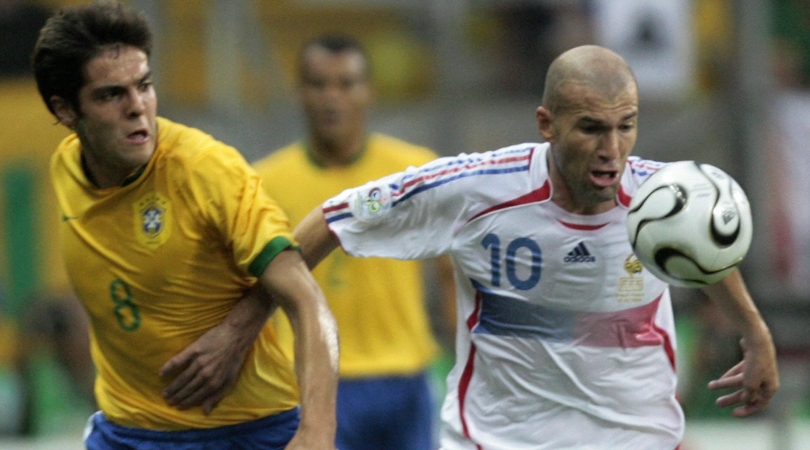
The year 2000 saw France follow up their 1998 World Cup win with victory in the Euros and Real Madrid claim the European Cup for the eighth time in their history. Plus ça change.
Overall, the first decade of the new millennium was transformational for Barcelona and Spanish football, while Greece shocked everyone by winning Euro 2004. It also brought an astonishing comeback win for Liverpool in Istanbul, while Chelsea became a force under Jose Mourinho.
Some of the world's best players picked up where they left off in the 1990s, while many exciting new talents also emerged. Here, a look at the best midfielders from 2000 to 2009...
35. Theo Zagorakis
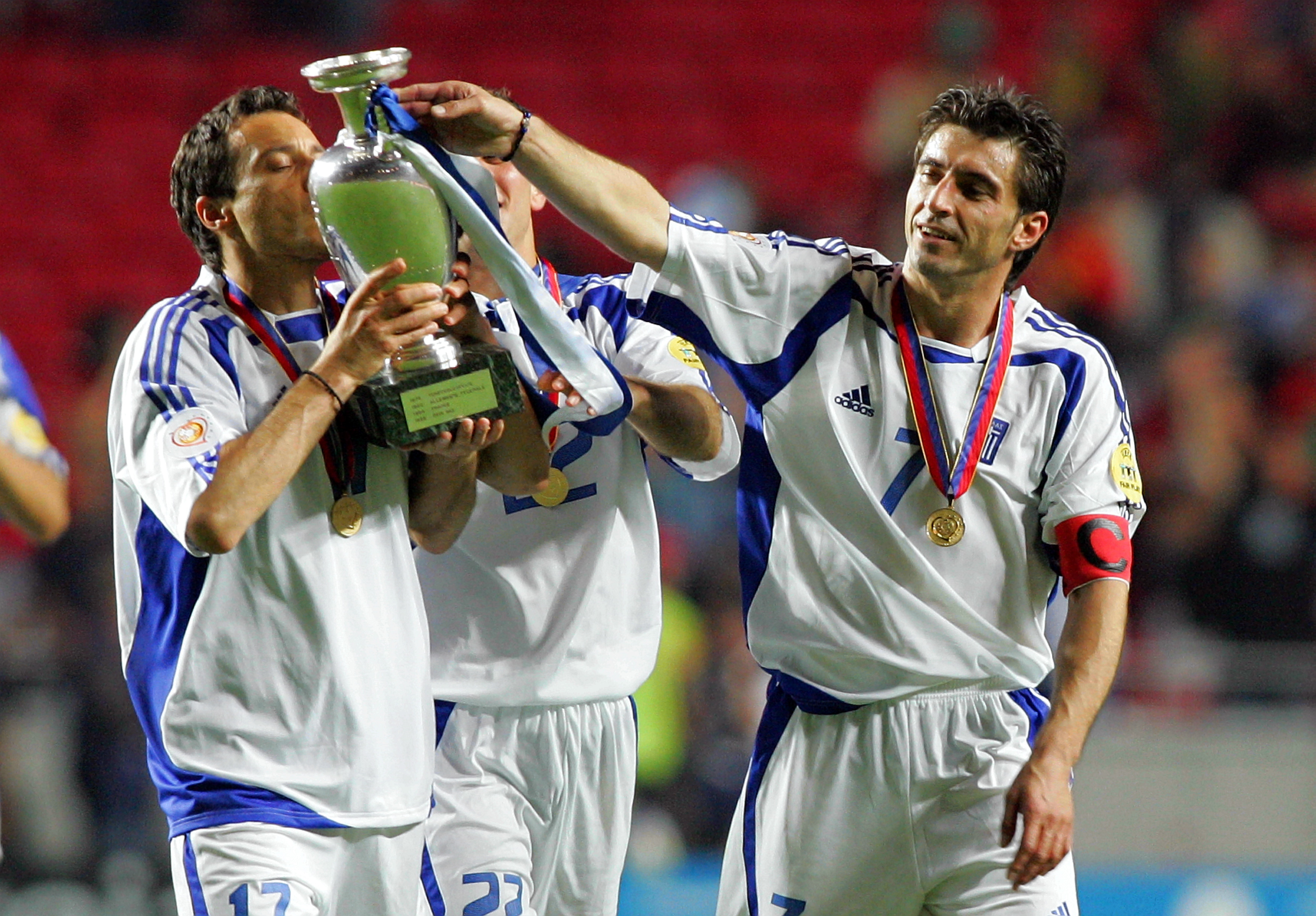
Theo Zagorakis was Greece's captain in their Euro 2004 win and the midfielder typified the qualities and the spirit of that team.
An industrious and combative defensive midfielder, Zagorakis was named Player of the Tournament for his performances at Euro 2004 and came fifth in the Ballon d'Or vote that year. He also went in goal once for Leicester against Crystal Palace.
34. Stefan Effenberg
Stefan Effenberg was a controversial character on and off the pitch and upset a lot of people throughout his career – including fans, managers and even some of his own team-mates.
But he was a midfield powerhouse in the 1990s and early 2000s and led Bayern Munich to the Champions League title in 2001. He was also named UEFA Club Footballer of the Year after that triumph.
Get FourFourTwo Newsletter
The best features, fun and footballing quizzes, straight to your inbox every week.
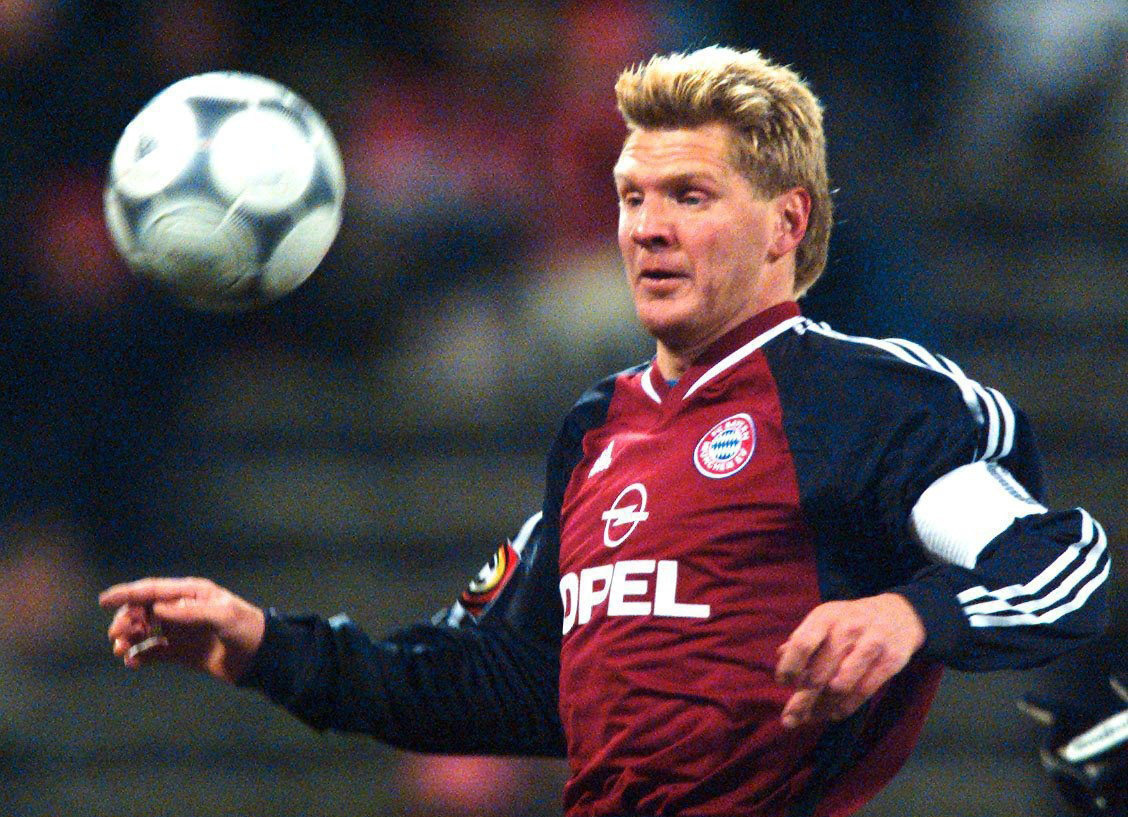
33. Michael Essien

Michael Essien was signed by Chelsea from Lyon in 2005 and quickly became an important player in Jose Mourinho's successful side.
Comfortable as a box-to-box midfielder or in a defensive role, the Ghanaian was nicknamed "The Bison" and he played a key part as the Blues picked up a string of silverware in the late 2000s. He also won the Champions League with Chelsea in 2012 after missing out to Manchester United in the final four years earlier.
32. Marcos Senna

Marcos Senna was born in Brazil but gained Spanish citizenship in 2006 and went on to play a pivotal part in an era-defining moment for La Roja.
His selection had been controversial initially and was criticised by many, but the dissenting voices soon disappeared as the defensive midfielder put on a number of heroic displays en route to the title – a first for Spain since 1964. Senna was named in UEFA's Squad of the tournament and for many, the Villarreal midfielder was also the competition's standout performer.
31. Rui Costa
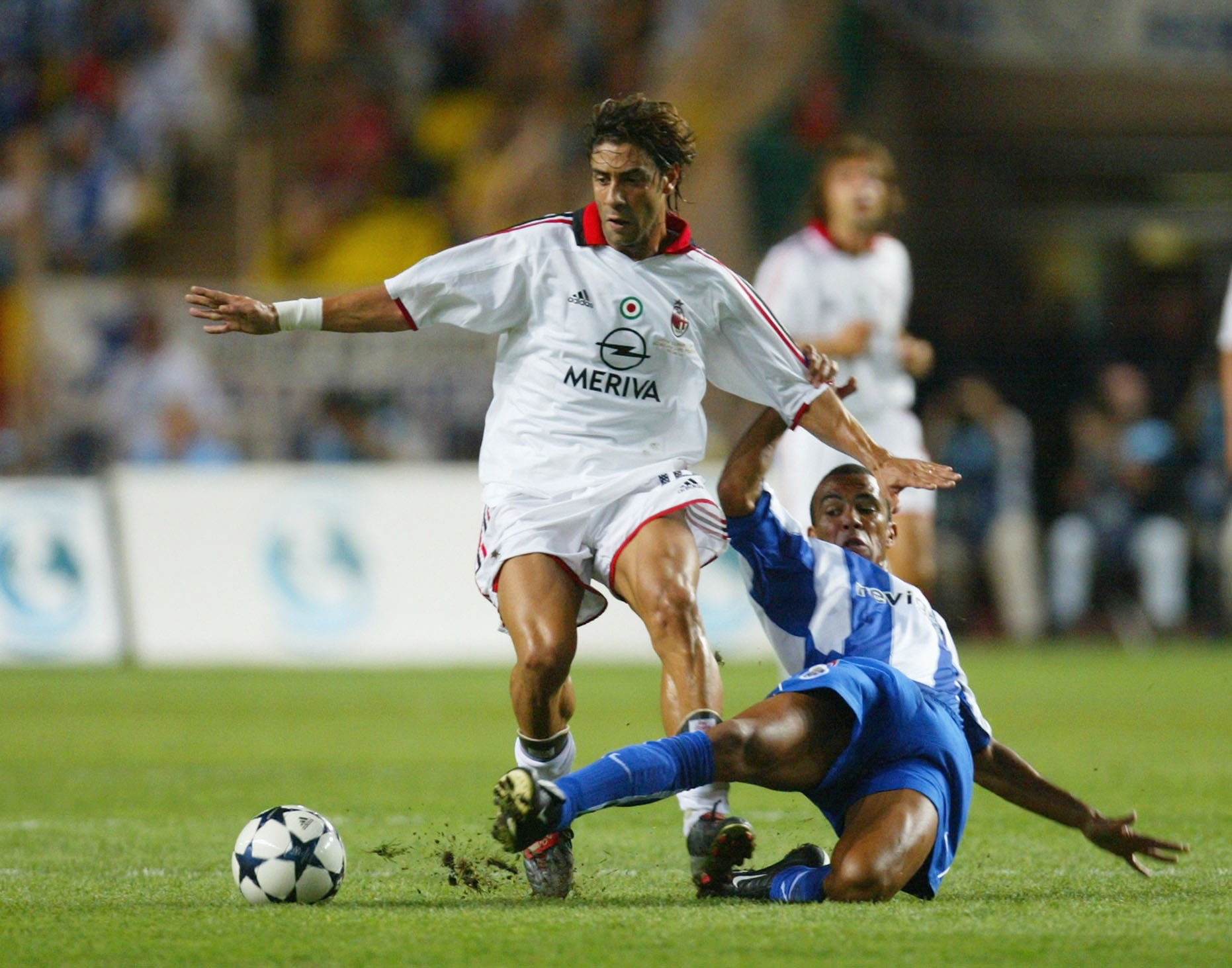
Rui Costa may have played his best football in the 1990s, but the elegant Portuguese playmaker was still an excellent midfielder in the early 2000s and added some major trophies to his collection.
A starter in the 2003 Champions League final as Milan beat Juventus on penalties, Costa won Serie A the following season and also came close to an international trophy as Portugual lost to Greece in the Euro 2004 showpiece. He returned to Benfica in 2006, but his second spell at the Lisbon club was interrupted by injuries.
30. Juninho Pernambucano
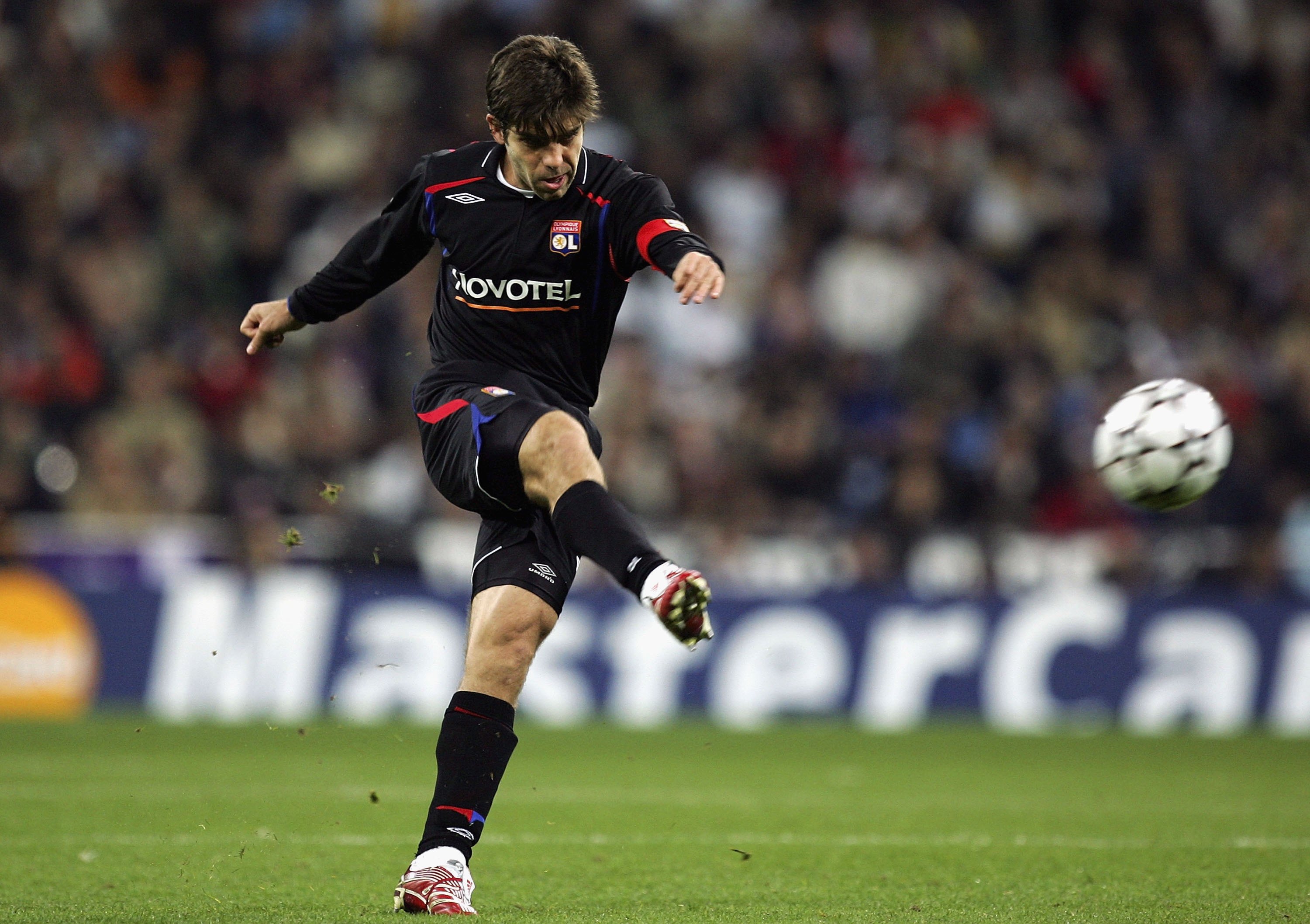
Juninho Pernambucano was a talented, underrated midfielder in the 2000s and a fixture in the Lyon team which won seven French titles in a row. He is also one of the finest free-kick takers in the history of the game.
In his career, he is said to have scored at least 75 goals from free-kicks, with the exact number not known, and a few of those efforts came from 40 yards out. He was unfortunate to miss Brazil's 2002 World Cup win and also their Copa America triumph in 2004 due to a recurring knee injury.
29. David Silva
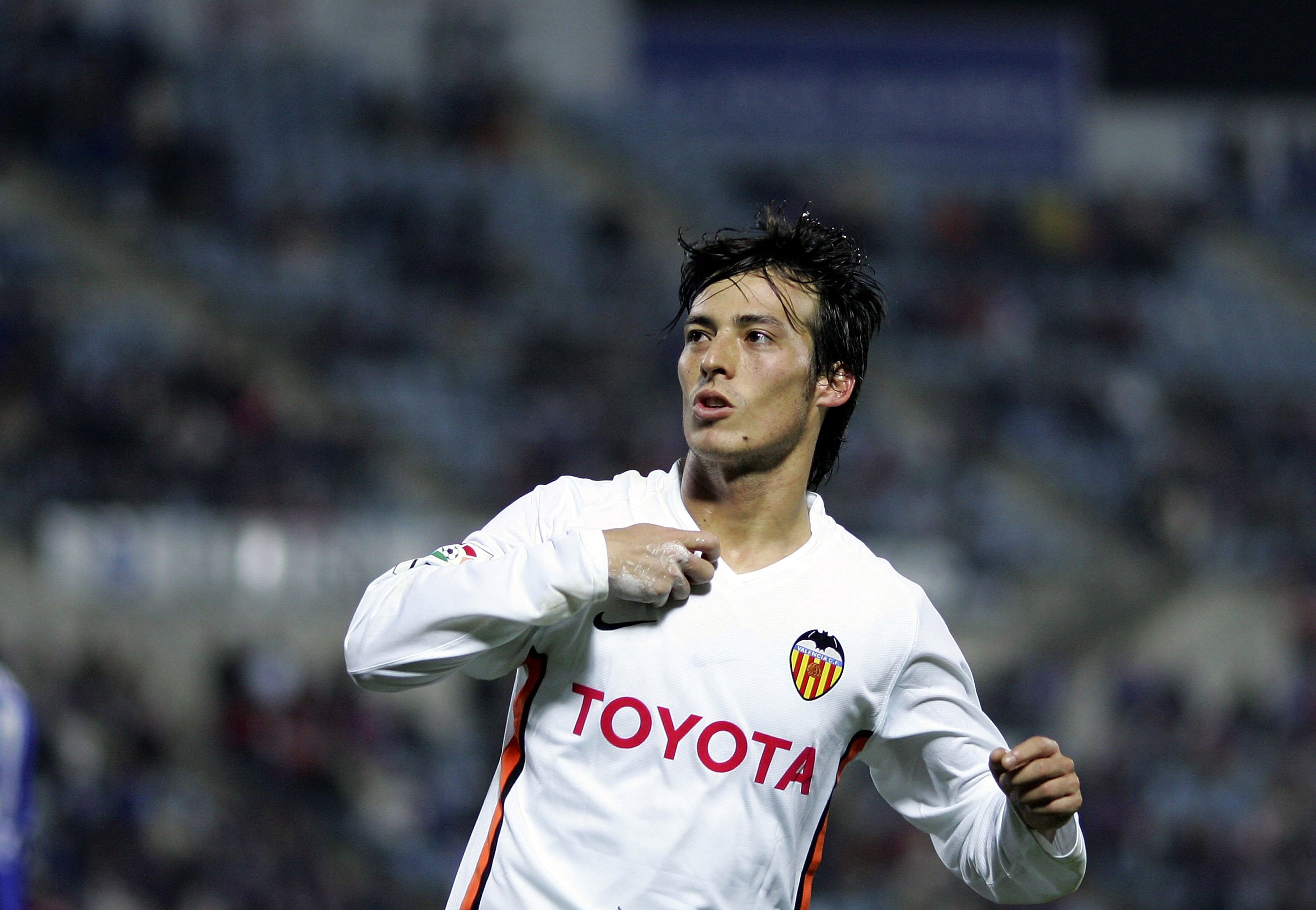
David Silva moved to Manchester City in 2010 and is idolised by the club's fans following a decade of fantastic football at the Etihad. But at Valencia, he was already a special player.
Born in the Canary Islands, Silva came through the youth system at Valencia and was outstanding for the club in the late 2000s. He won a Copa del Rey with the Mestalla outfit and was part of the Spain squad which triumphed at Euro 2008.
28. Franck Ribery

Franck Ribery won his first France cap in 2006 and ended up playing an important part for Les Blues as they reached a second World Cup final.
The winger scored a vital goal against Spain in the last 16 and played 100 minutes of the final, which France lost on penalties to Italy. He moved to Bayern Munich in 2007 and stayed at the Bavarian club for 12 years.
27. Edgar Davids
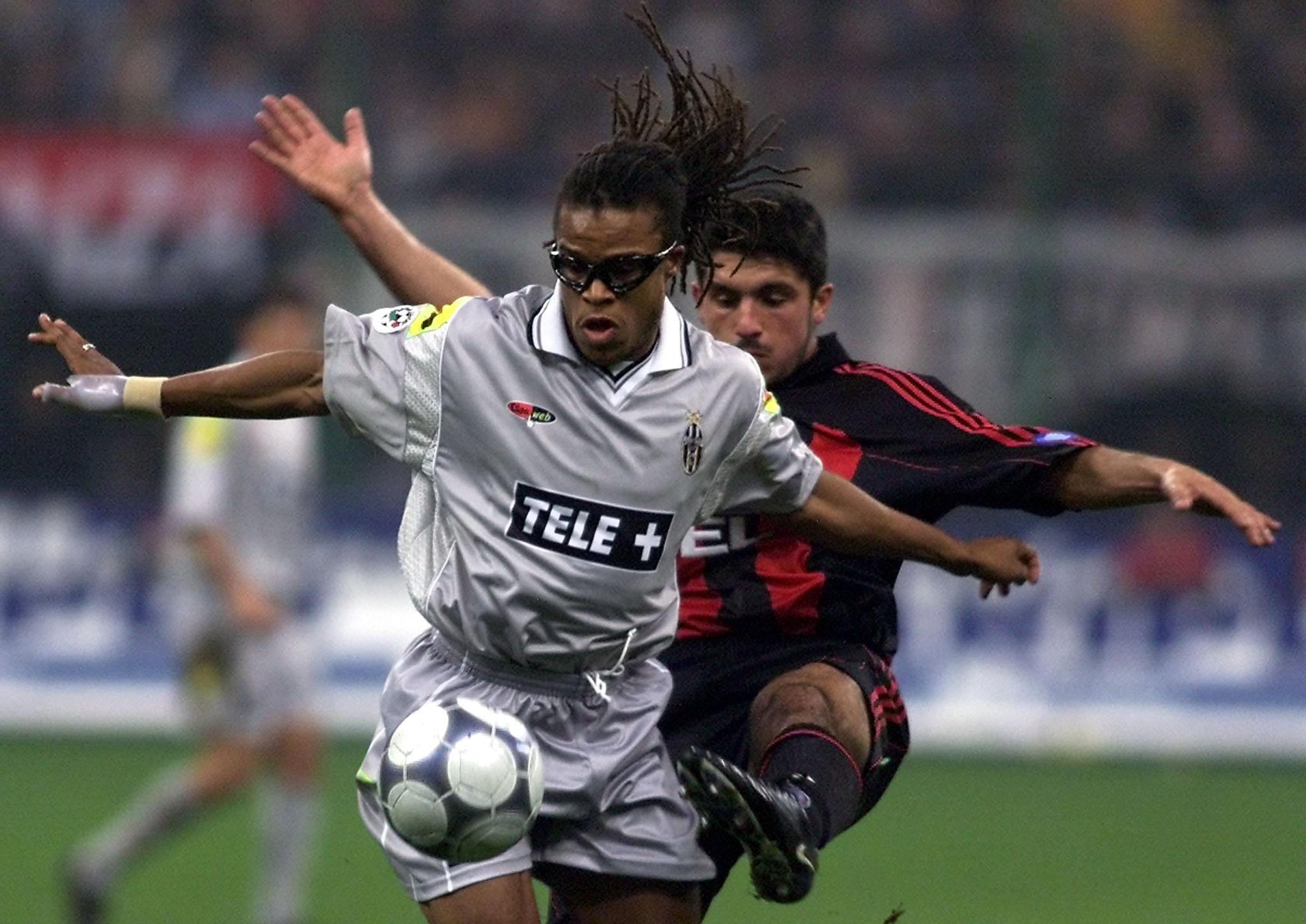
Edgar Davids played for the Netherlands until 2005 and although his career continued after that, it was winding down in the years ahead.
But at the start of the 2000s, the midfielder nicknamed "The Pitbull" still had plenty of bite. The Dutchman won two Serie A titles with Juventus in that time, helped the Bianconeri to the 2003 Champions League final – with a big semi-final win over Real Madrid included – and turned Barcelona from a mid-table team to title contenders in an impressive six-month loan spell in 2004.
26. Bastian Schweinsteiger
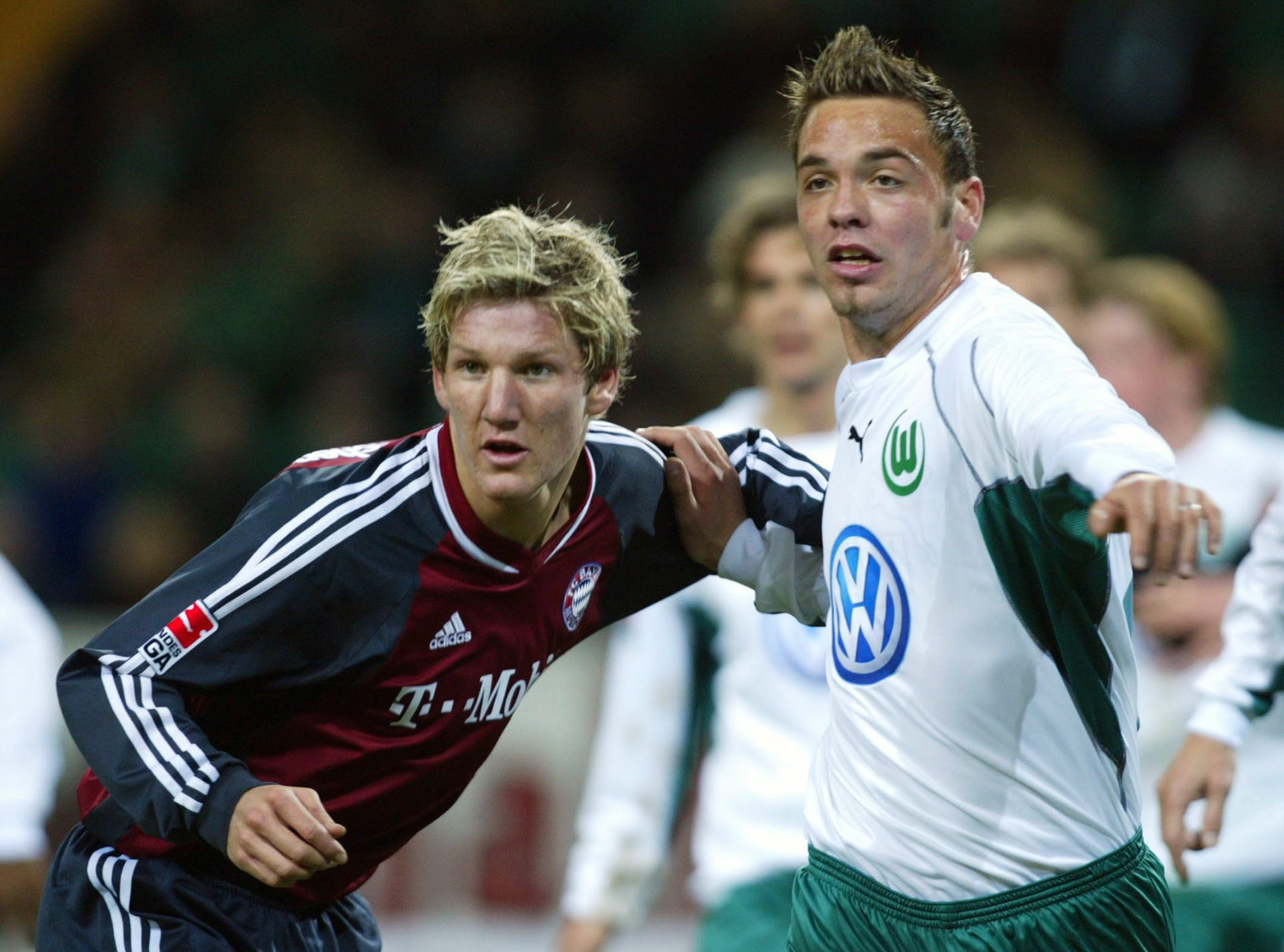
Both of Bastian Schweinsteiger's two career highlights came in the 2010s: Bayern Munich's treble triumph in 2012/13 and Germany's World Cup win in 2014. However, he was already oustanding in the previous decade.
A creative and high-energy player capable of operating in a number of different roles, Schweinsteiger was the engine in midfield for club and country for well over a decade and one of the finest players of his generation.
25. Claude Makelele
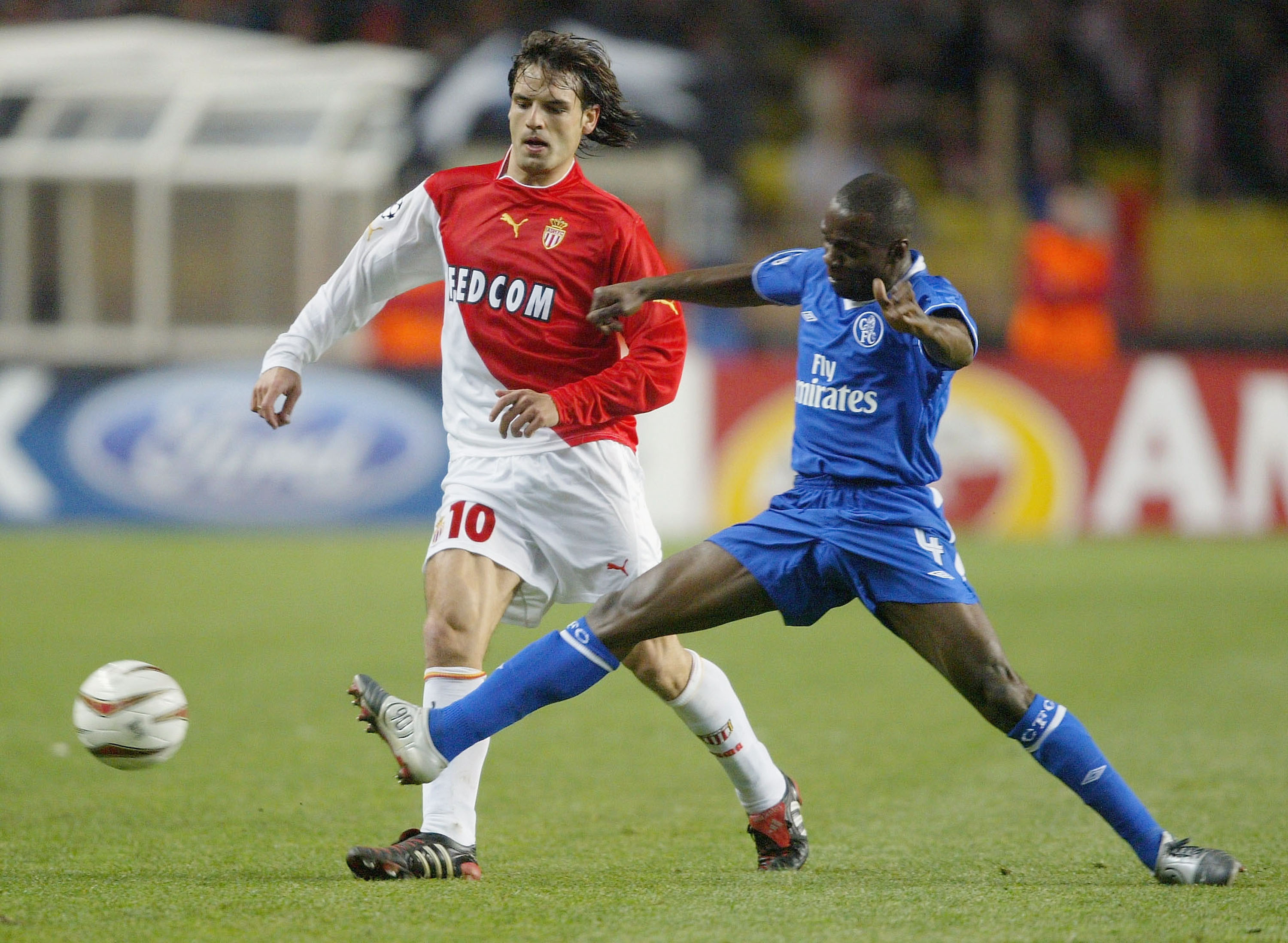
Not many players have a position named after them. Claude Makelele did. The "Makelele role" became the benchmark for defensive midfielders in the 2000s – at least in the Premier League – following the Frenchman's success at Chelsea.
Real Madrid's decline in the early 2000s can be measured by the moment they sold Makelele in 2003. That turned out to be a terrible decision, but their loss was Chelsea's gain and the Frenchman was outstanding in an impressive five-year spell with the Blues. He also played in the 2006 World Cup final for France.
24. Xabi Alonso
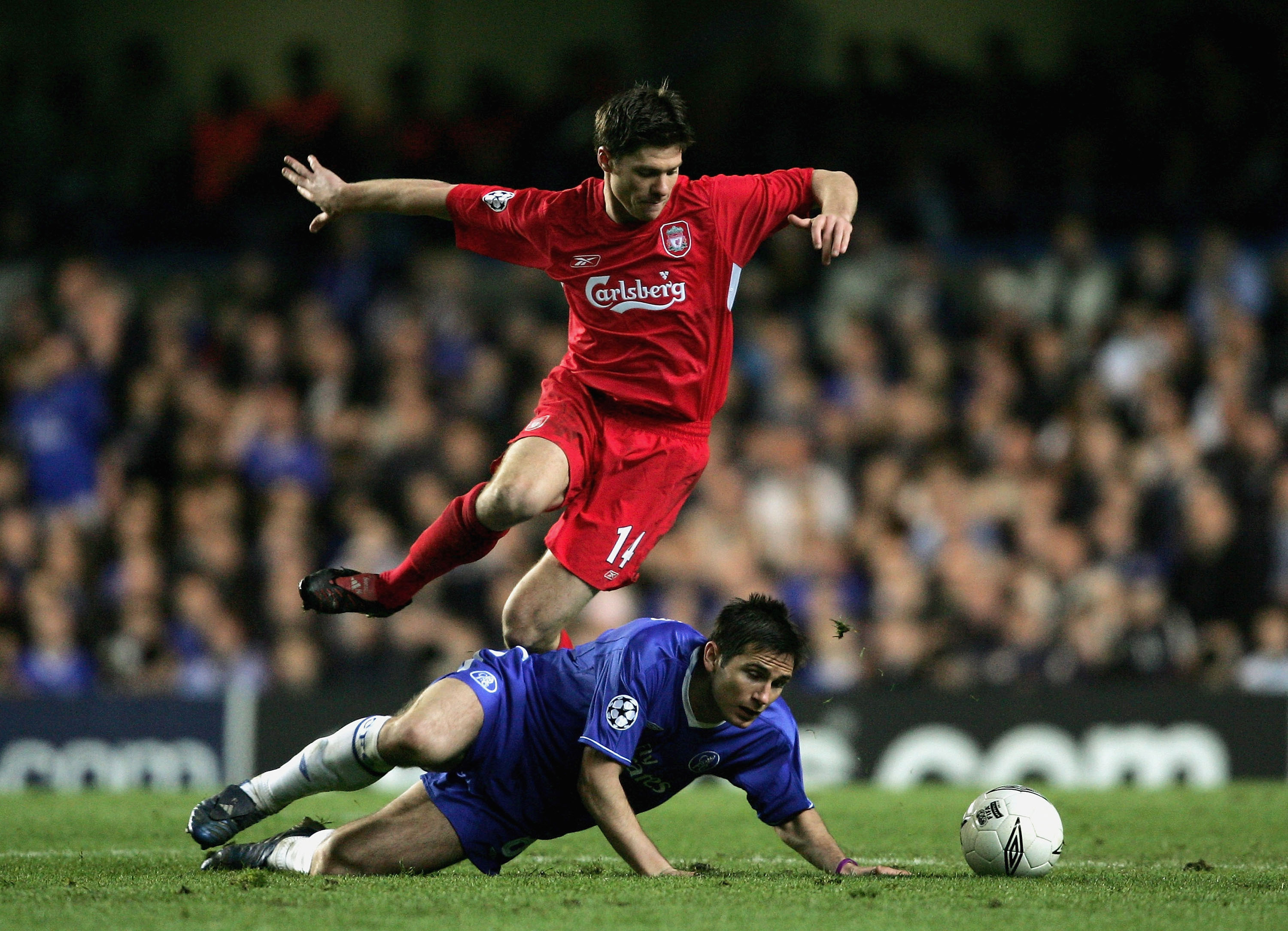
Xabi Alonso came through the youth ranks at his local club Real Sociedad. Realled from a loan spell at Eibar and made captain by manager John Toshack, he never looked back.
The stylish midfielder moved to Liverpool in 2004 and ended his first season as a Champions League winner, scoring the Reds' equaliser in their epic comeback in Istanbul. Despite his popularity with fans and impressive displays, manager Rafa Benitez wanted to sell the Spaniard and buy Gareth Barry instead. After helping Spain win the Euros in 2008, Alonso finally left for Real Madrid in 2009 and won a host of trophies over the next decade.
23. Clarence Seedorf
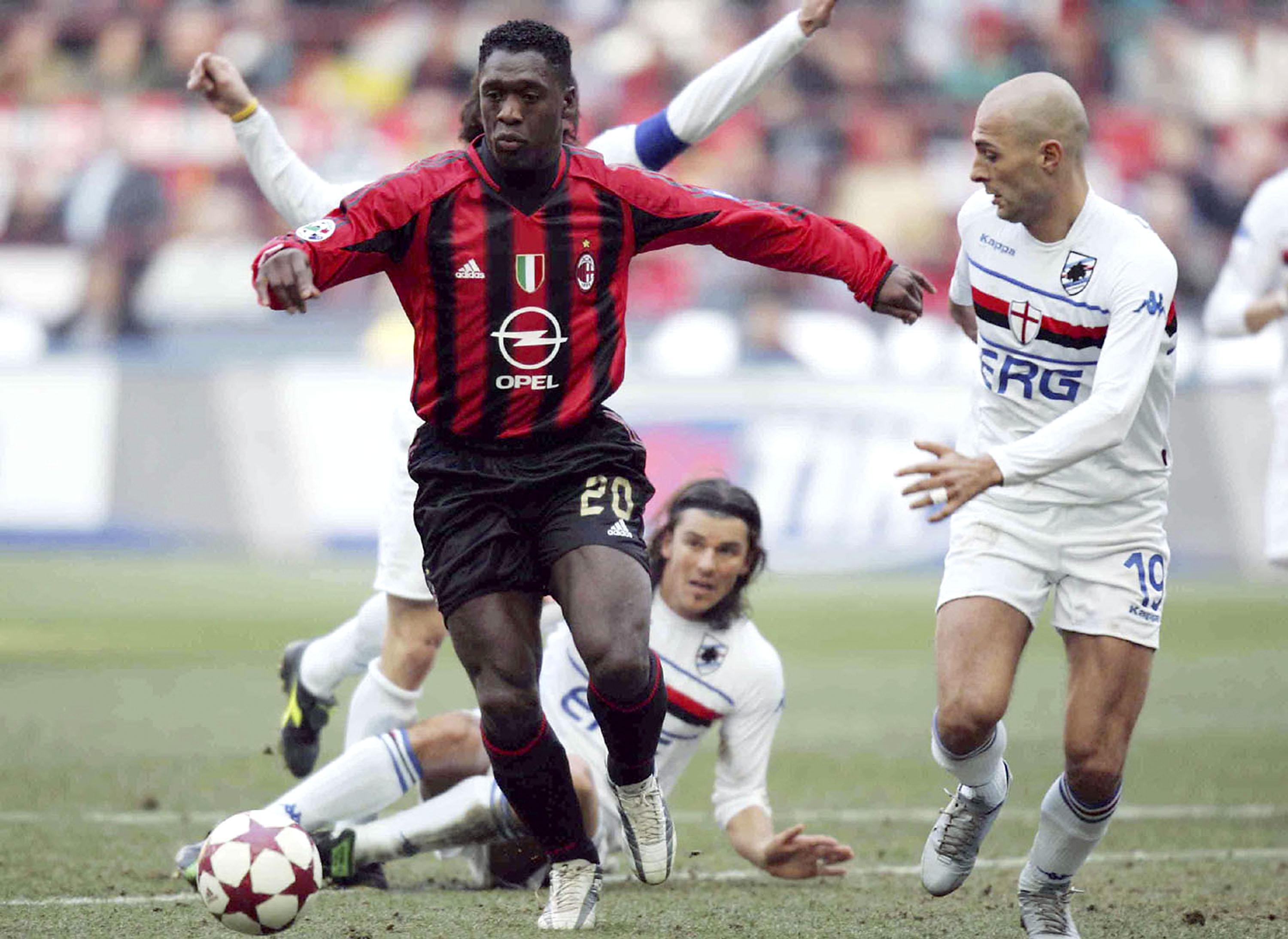
After leaving Real Madrid in 1999, Clarence Seedorf returned to Italy where he had already spent a successful season with Sampdoria prior to signing for Los Blancos.
The Suriname-born midfielder lasted just over two years at Inter and was then surprisingly allowed to join their city rivals AC MIlan in exchange for Francesco Coco. And on the red-and-black side of the divide, he had his best years, winning two more Champions Leagues and a couple of Serie A titles too in a memorable Milan midfield.
22. Juan Roman Riquelme
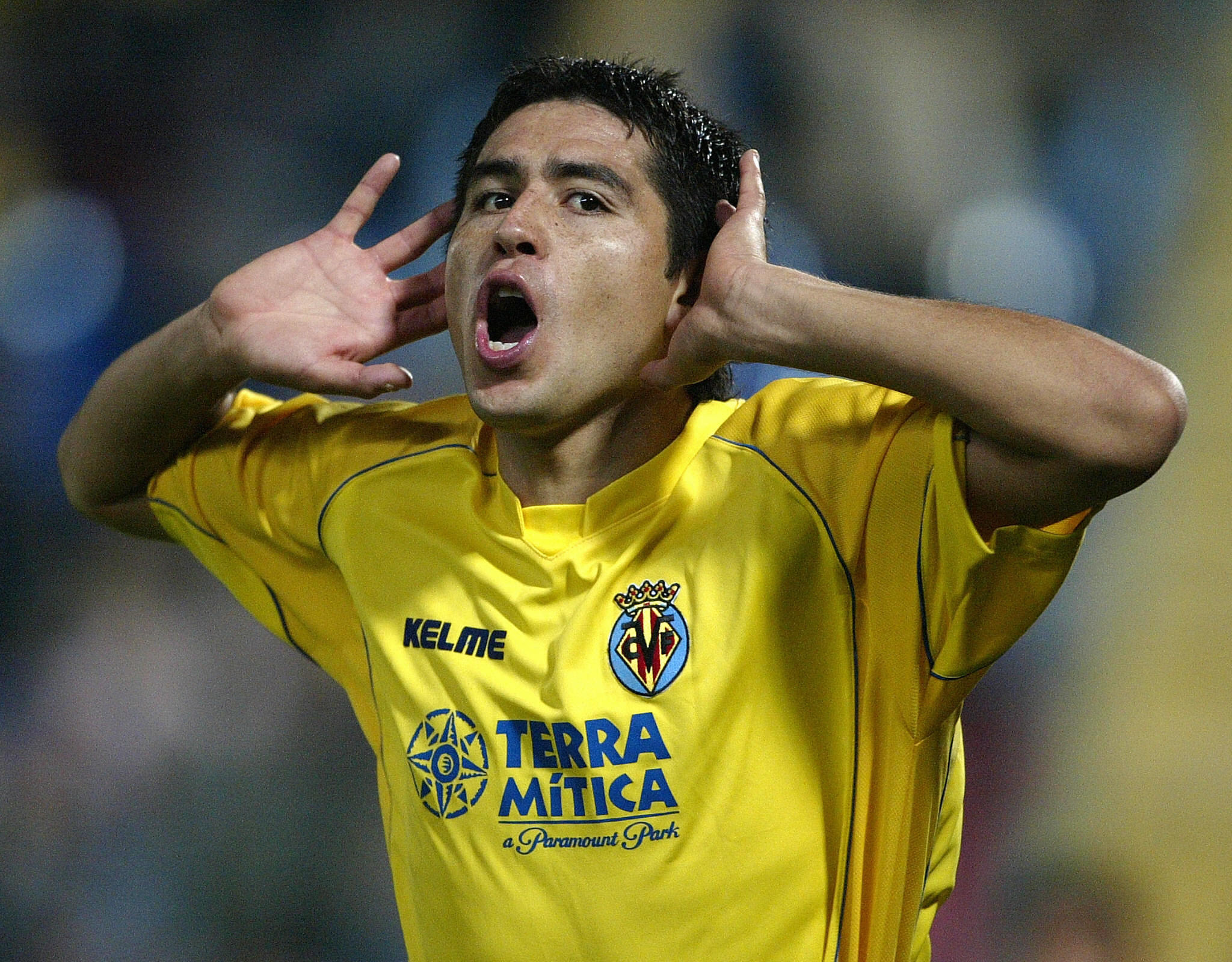
There are no footballers left like Juan Roman Riquelme. A classic number 10 from a bygone era, the Argentine was wonderful with the ball at his feet and featured in some memorable teams in the 2000s.
His two spells at Boca Juniors stand out and featured three Copa Libertadores wins, while his time at Villarreal is also fondly remembered as the Yellow Submarine finished second in La Liga. He was also notoriously difficult to work with, often slowed his teams down and was not known for his work rate. But at his best, he was extraordinary.
21. Patrick Vieira
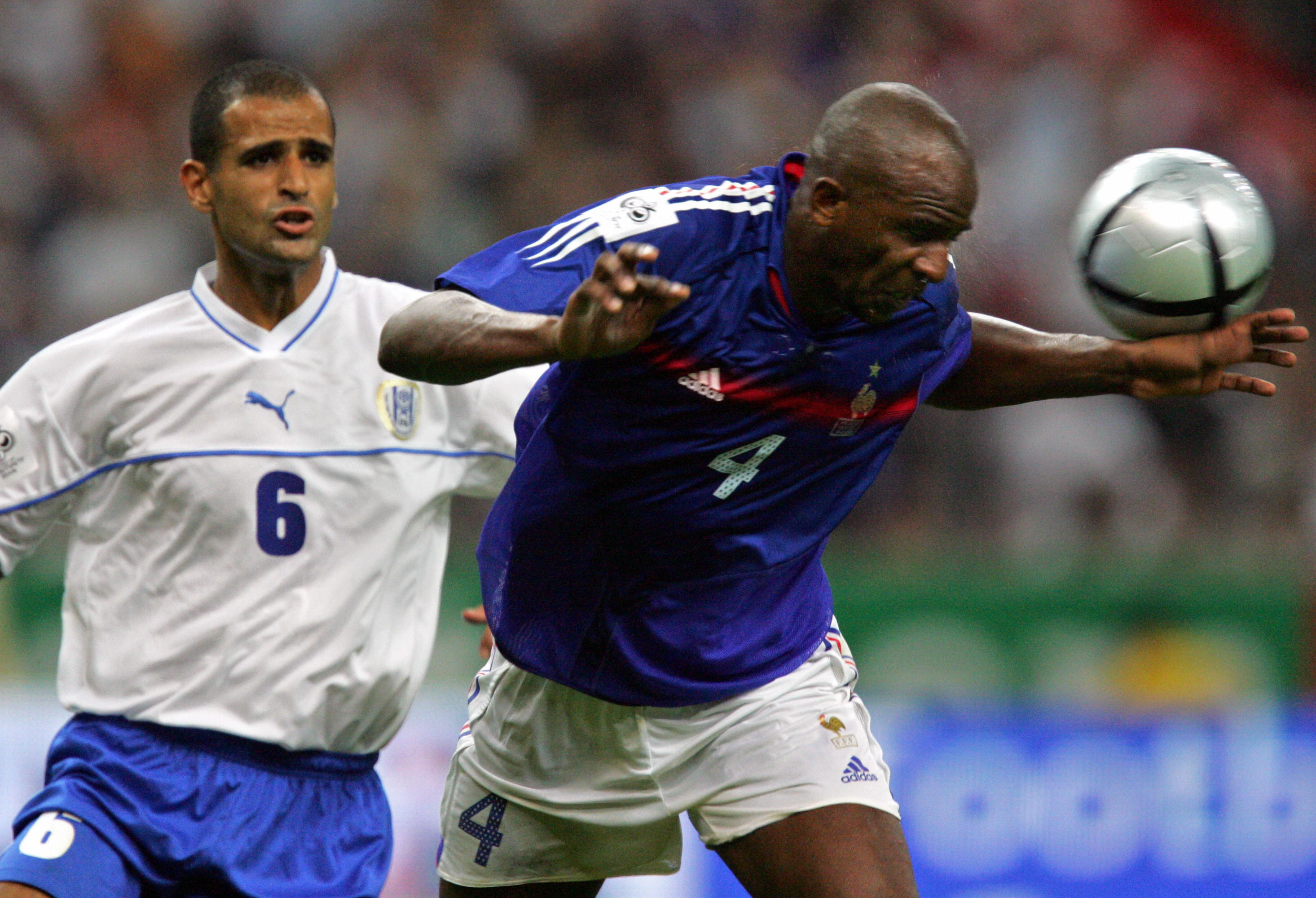
Patrick Vieira was still only 23 years old when the year 2000 arrived and the French midfielder continued to play at a high level for a number of years.
Vieira was part of the French side which won Euro 2000 as he started alongside Didier Deschamps in midfield and also played in the 2006 World Cup final loss to Italy. He left Arsenal in 2005 for Juventus, before moving to Inter and later Manchester City. But his best years were spent in north London.
20. Arjen Robben
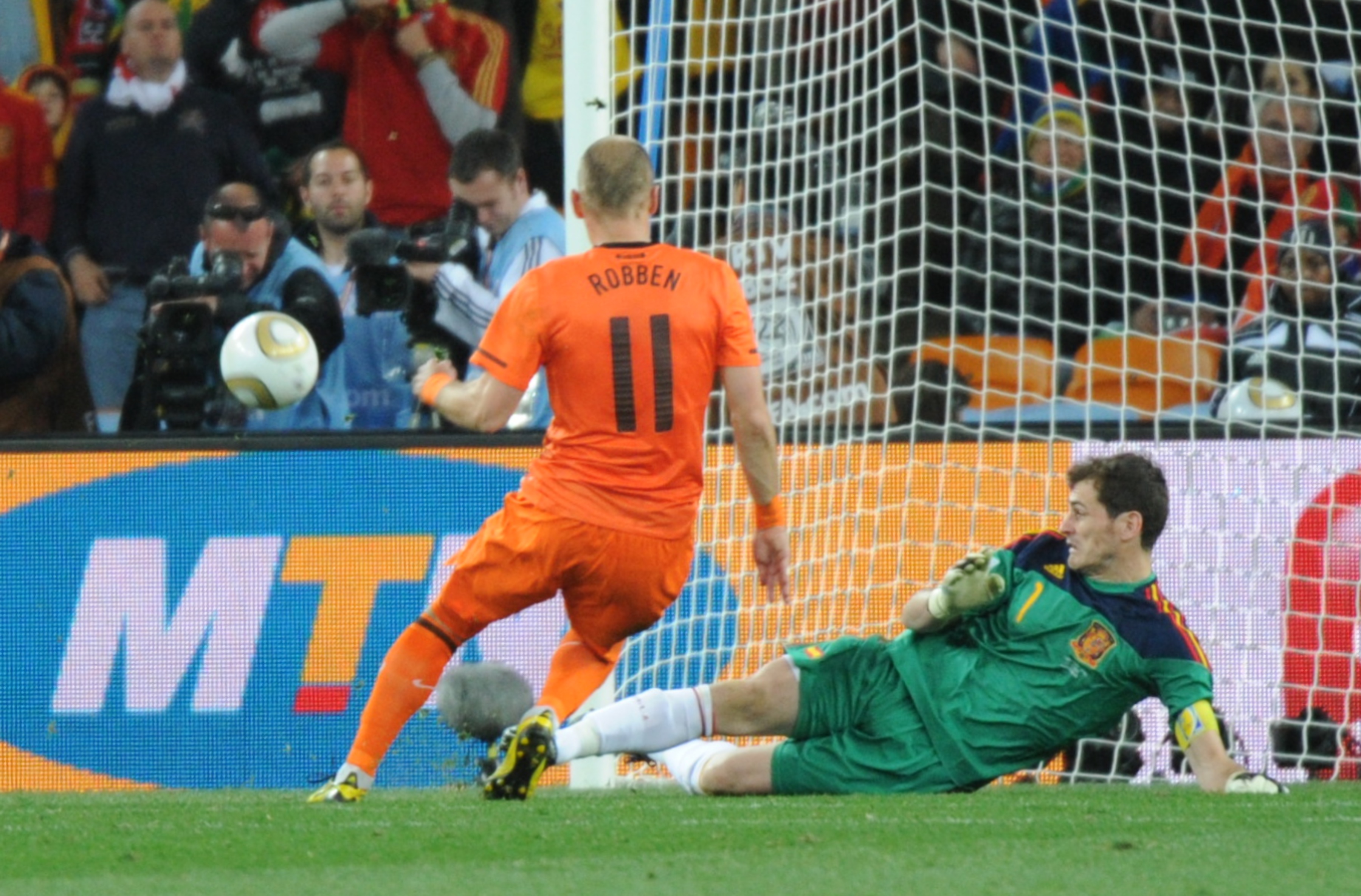
Arjen Robben made a career out of scoring the same goal but is probably best remembered for a miss.
The Dutch winger had history at his feet with only Iker Casillas to beat in the Netherlands' World Cup final against Spain in South Africa, but his effort was saved by the former Real Madrid goalkeeper. He still had a wonderful career, though, and was one of the world's best players in the late 2000s.
19. David Beckham

David Beckham's best years came at Manchester United and during that time, the midfielder was undoubtedly one of the world's finest footballers. But after leaving Old Trafford in 2003, he was never quite the same.
Real Madrid were soon to be a club in crisis, changing coaches regularly, and Beckham had to wait until the end before winning a major trophy. Then he left for LA Galaxy. And at international level, his highlight was that free-kick against Greece in 2001. Despite his huge talent, he never did truly make his mark on a major tournament with England.
18. Gaizka Mendieta
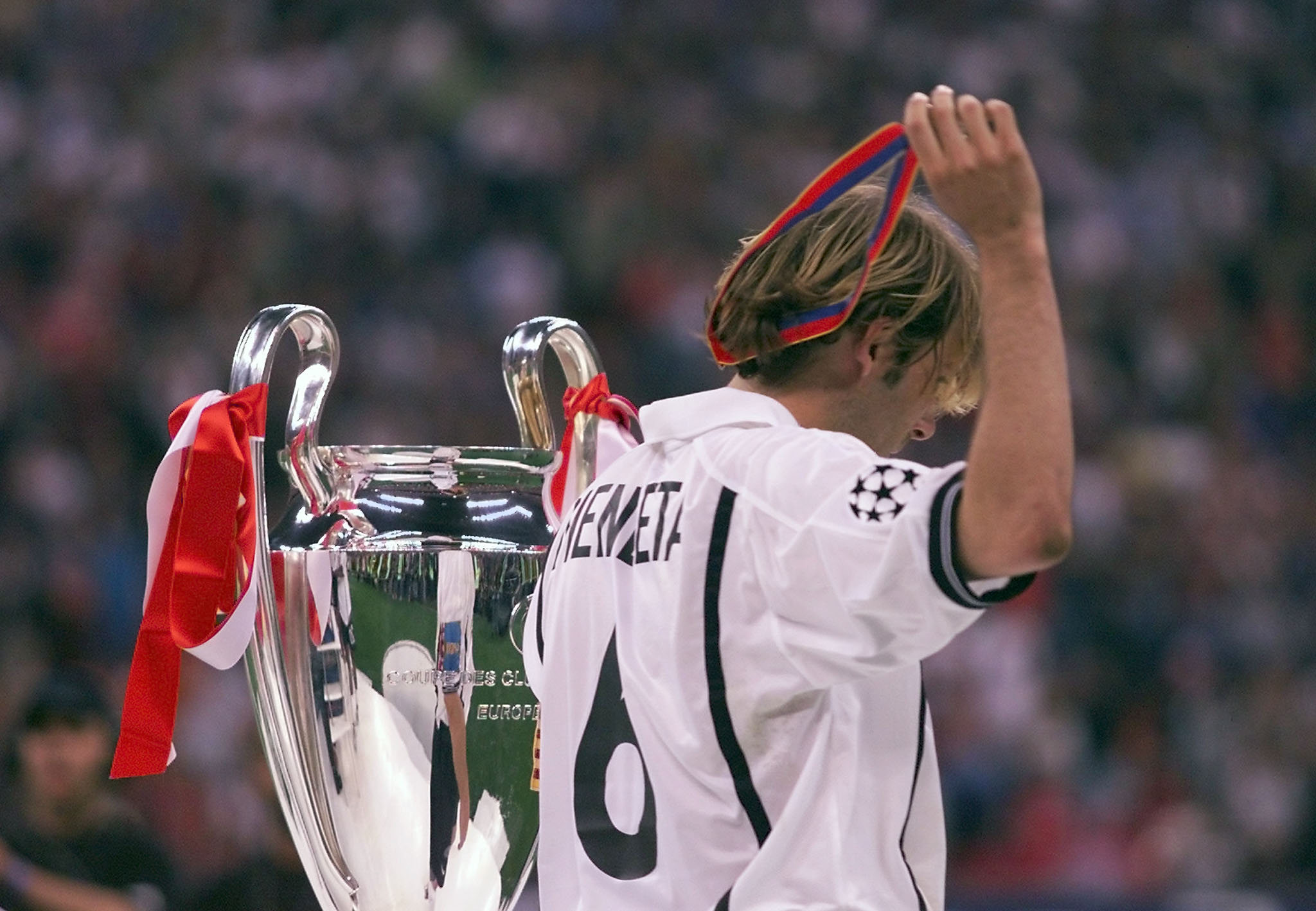
Gaizka Mendieta was an exceptional player for Valencia in the late 1990s and early 2000s and the Basque midfielder led the Mestalla outfit to back-to-back Champions League finals in 2000 and 2001.
Unfortunately for Valencia, they lost them both. Mendieta scored 33 goals from midfield across those two seasons and many of his strikes were spectacular. A move to Lazio in 2001 didn't work out and after a short spell at Barcelona, he finished his career in an injury-interrupted stint at Middlesbrough.
17. Ryan Giggs
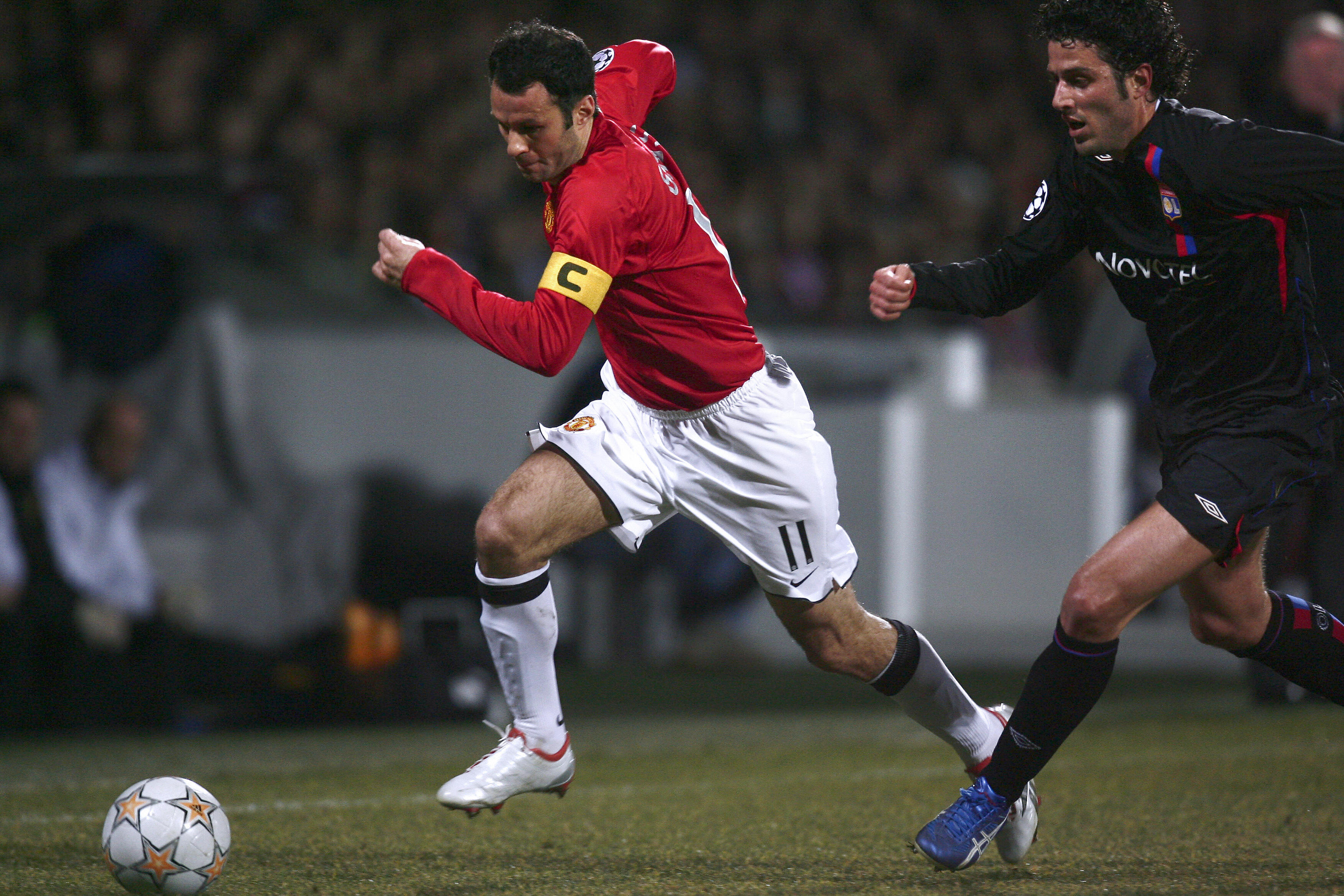
By the time the 2000s came around, Ryan Giggs had been with Manchester United's first team for a decade already. At 27 years old in 2000, he did not have to change his game too much yet, but that would come.
As the years went by and the Welsh winger lost his pace and athleticism, he took on different roles in midfield for United, dropping deeper in a central midfield position. But he remained key throughout and played a significant part in the team's success throughout the 2000s, winning six Premier League titles and another Champions League crown.
16. Gennaro Gattuso
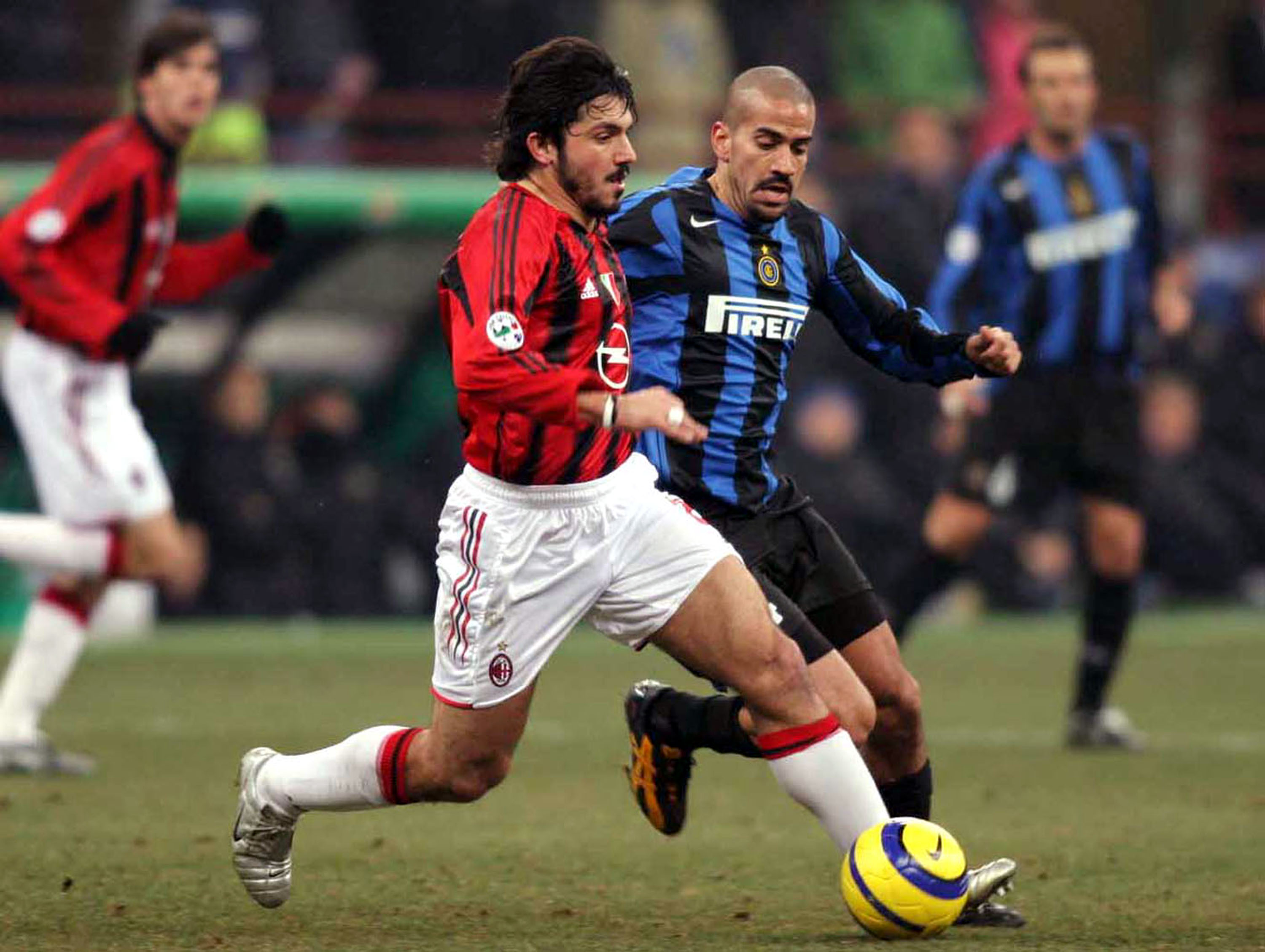
A midfield hardman for AC Milan and Italy, Gennaro Gattuso was central to the success of club and country for well over a decade.
Considered one of the greatest holding midfielders ever, Gattuso improved his technical ability over time and provided protection for his defences – usually alongside more creative and expressive players. He helped Italy win the World Cup in 2006 and was a fixture in the successful Milan sides of the 2000s.
15. Cesc Fabregas
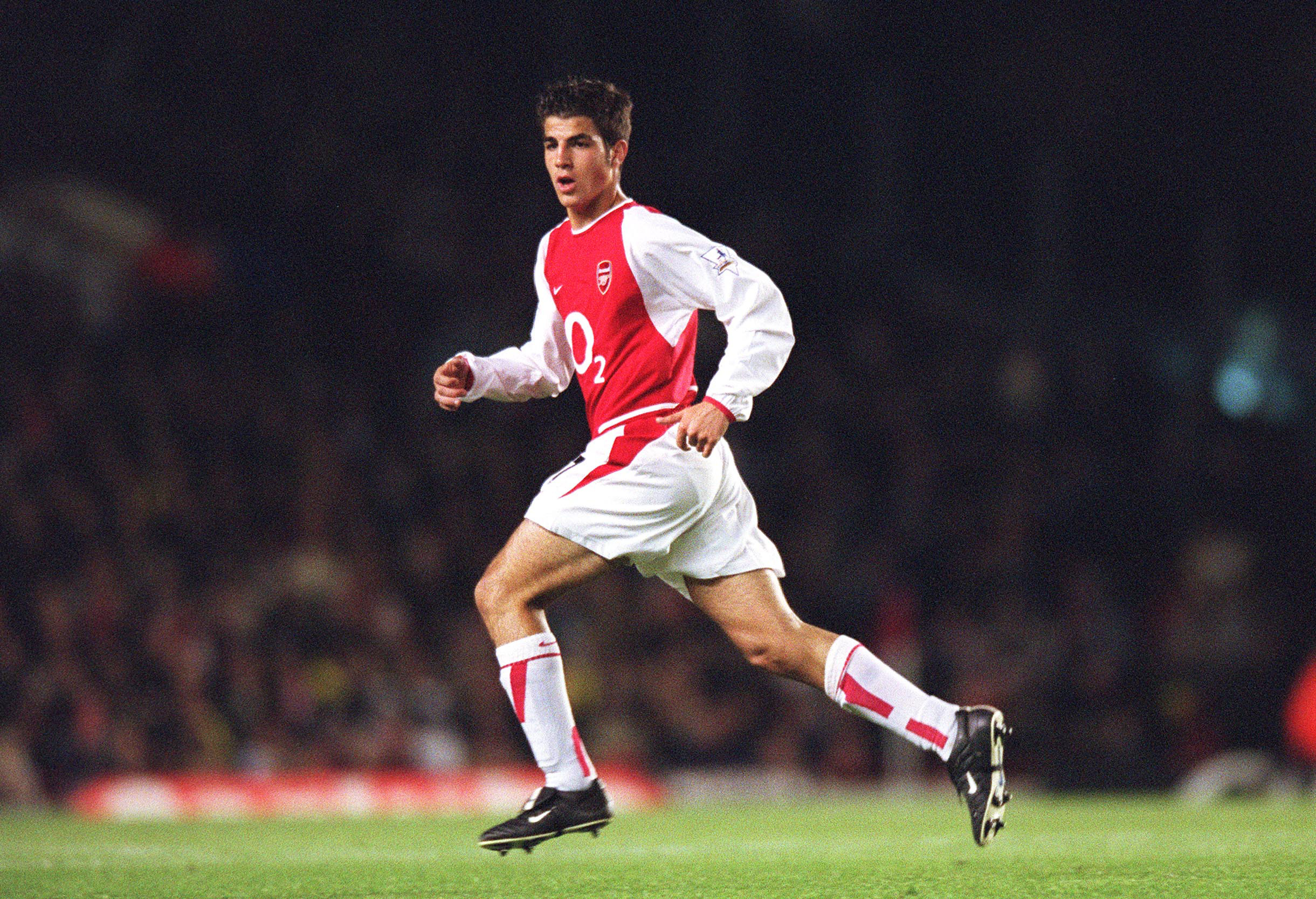
Seeing a golden generation of players ahead of him at Barcelona, Cesc Fabregas opted to sign for Arsenal instead and the teenage midfielder quickly made his mark.
Cesc made his debut as a 16-year-old and quickly became one of the best players in the Premier League. He won an FA Cup in 2005 and helped the Gunners to a Champions League final the following season, only to lose to his boyhood club. He returned to Barcelona in 2011, a European champion and World Cup winner with Spain by then.
14. Paul Scholes
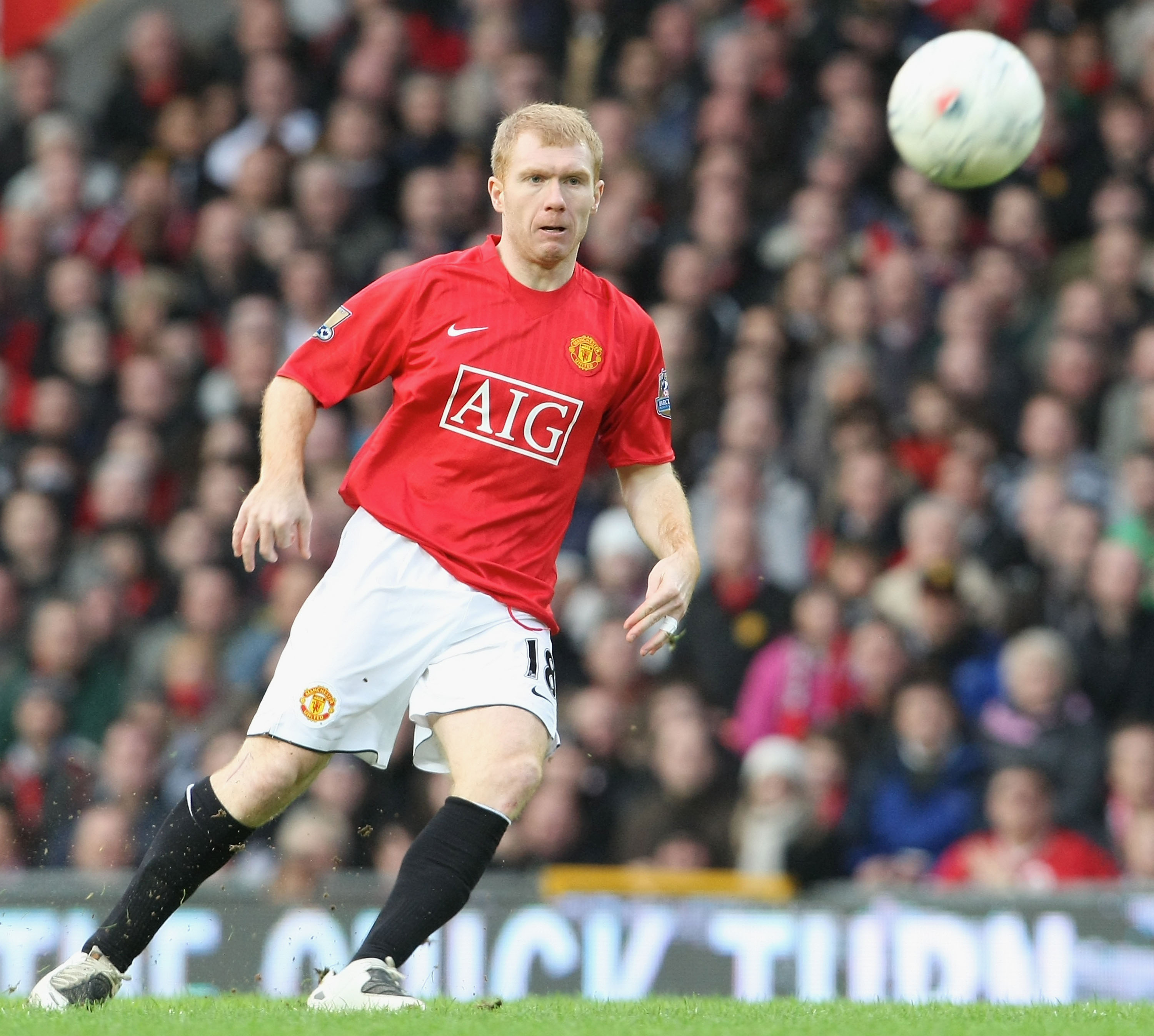
By April 2009, Paul Scholes had racked up an unbelievable 600 appearances in all competitions for Manchester United. He would go on to play 718 games for the Red Devils and remained important throughout.
Always a goal threat, Scholes scored 155 times for United and created numerous others for his team-mates. He won the Premier League 13 times with the Red Devils, with six of those coming in the 2000s. He cut short his career with England in 2004, but still won 66 caps for his country (with 14 goals).
13. Michael Ballack
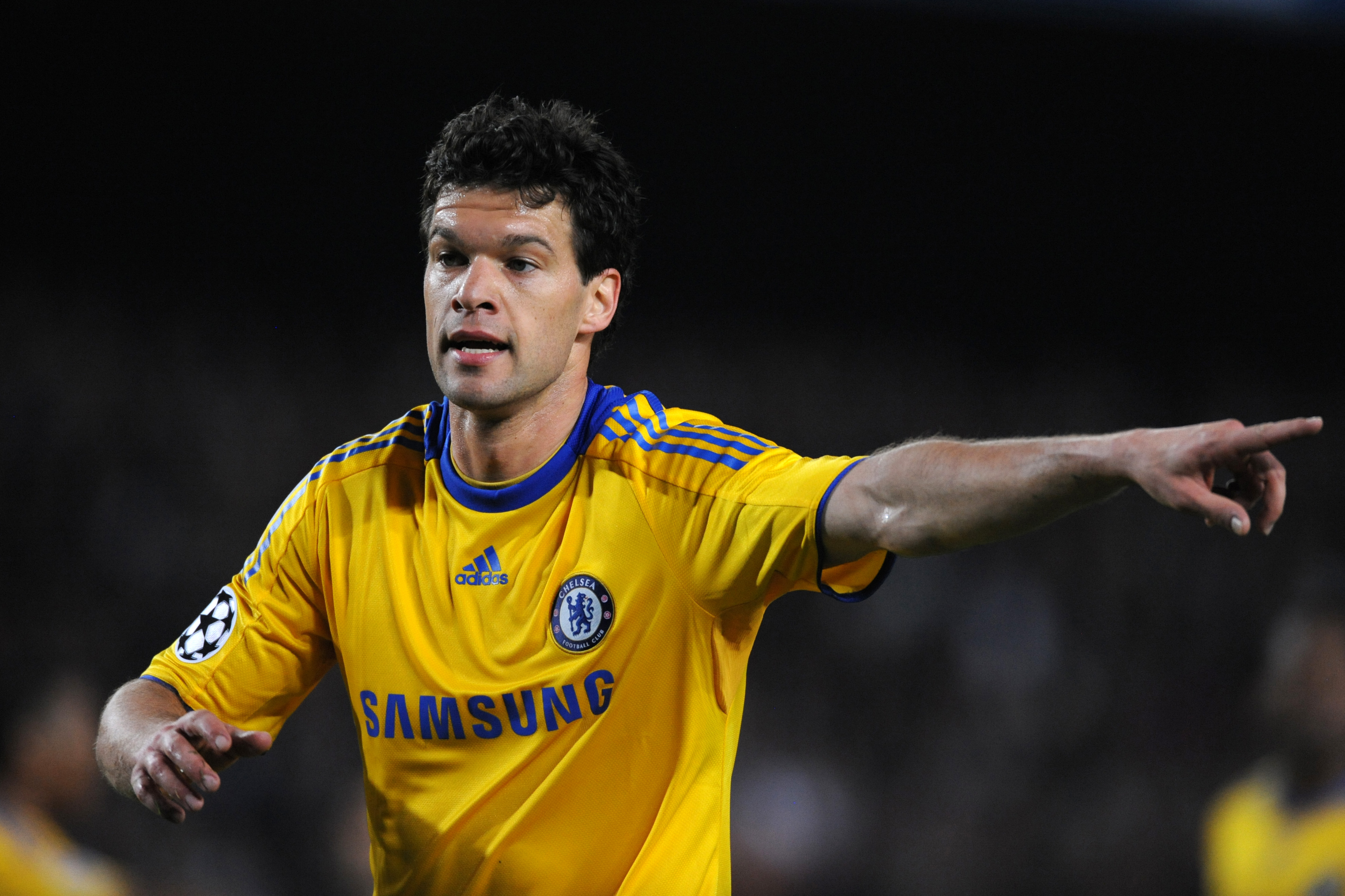
Michael Ballack has to be one of the unluckiest players in football history, so it makes sense to put him in 13th position.
In 2000, he was part of the Bayer Leverkusen side which suffered a "treble horror", throwing away a five-point lead to lose the Bundesliga title and going down in the Champions League and DFB Pokal finals. Germany's one outstanding midfielder in 2002, he missed the World Cup final due to suspension. And in 2010, he missed the tournament through injury following a reckless tackle by Kevin-Prince Boateng. Tragically, Ballack also lost his son in a quad bike accident in 2021. Despite all that misfortune, he did win plenty of trophies with Chelsea and Bayern Munich, and was one of the world's best box-to-box midfielders in his day.
12. Sergio Busquets

Sergio Busquets was promoted from Barcelona's youth team by Pep Guardiola in 2008 and took to his new surroundings like a duck to water. The youngster displaced the excellent Yaya Toure and helped the Catalan club win the treble that same season.
He was soon called up by Spain and was a starter in the team which won the World Cup in South Africa in 2010. Alongside Xavi and Andres Iniesta, he formed perhaps the greatest midfield the game has ever seen – but he was just getting started in the late 2000s.
11. Steven Gerrard

Steven Gerrard was unable to get his hands on the Premier League during his career, but the midfielder did win a European Cup – and in epic fashion too – as the Reds came from 3-0 down in Istanbul to beat AC Milan on penalties.
Gerrard's goal started that comeback. Overall, he played 710 games for Liverpool and scored 185 goals – many of them spectacular. Always committed, he was an unbelievable player on his day.
10. Frank Lampard

When Jose Mourinho arrived at Chelsea, he told Frank Lampard he was going to make him the best midfielder in the world. As a motivational tactic, those words worked a treat.
Lampard might not have been the world's best, but he was fantastic for the Blues and Mourinho recently described him as "probably the best player in the Premier League for a decade". In his time at Stamford Bridge, the midfielder helped the club to numerous trophies and also became the Blues' all-time top scorer with 211 goals in 648 games.
9. Deco
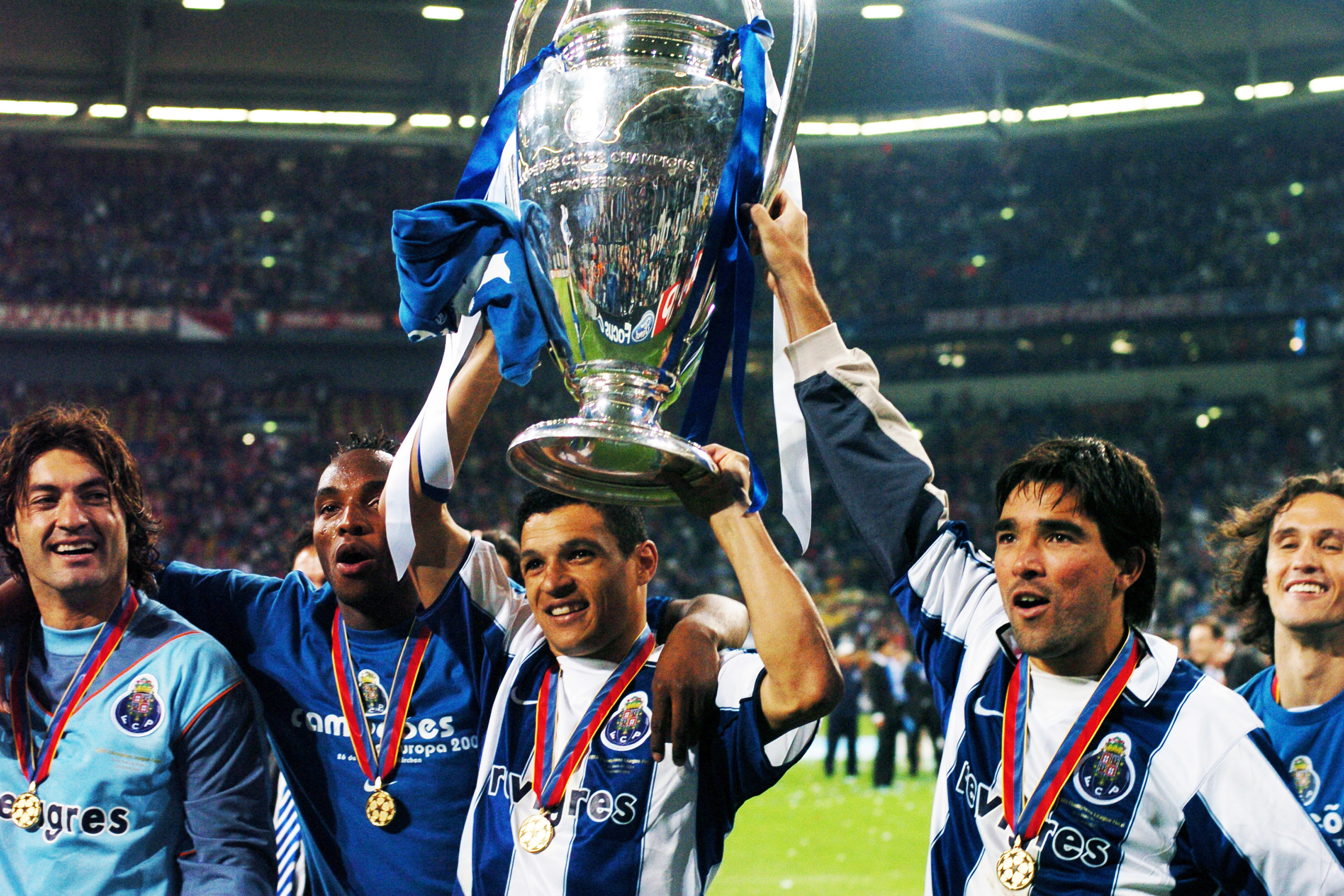
Deco was part of two Champions League-winning teams in the 2000s: Porto in 2004 and Barcelona in 2006.
A creative midfielder with excellent close control and good passing ability, Deco was born in Brazil but played for Portugal and helped the home nation reach the final of Euro 2004. He later played for Chelsea, before finishing his career at Fluminense.
8. Pavel Nedved
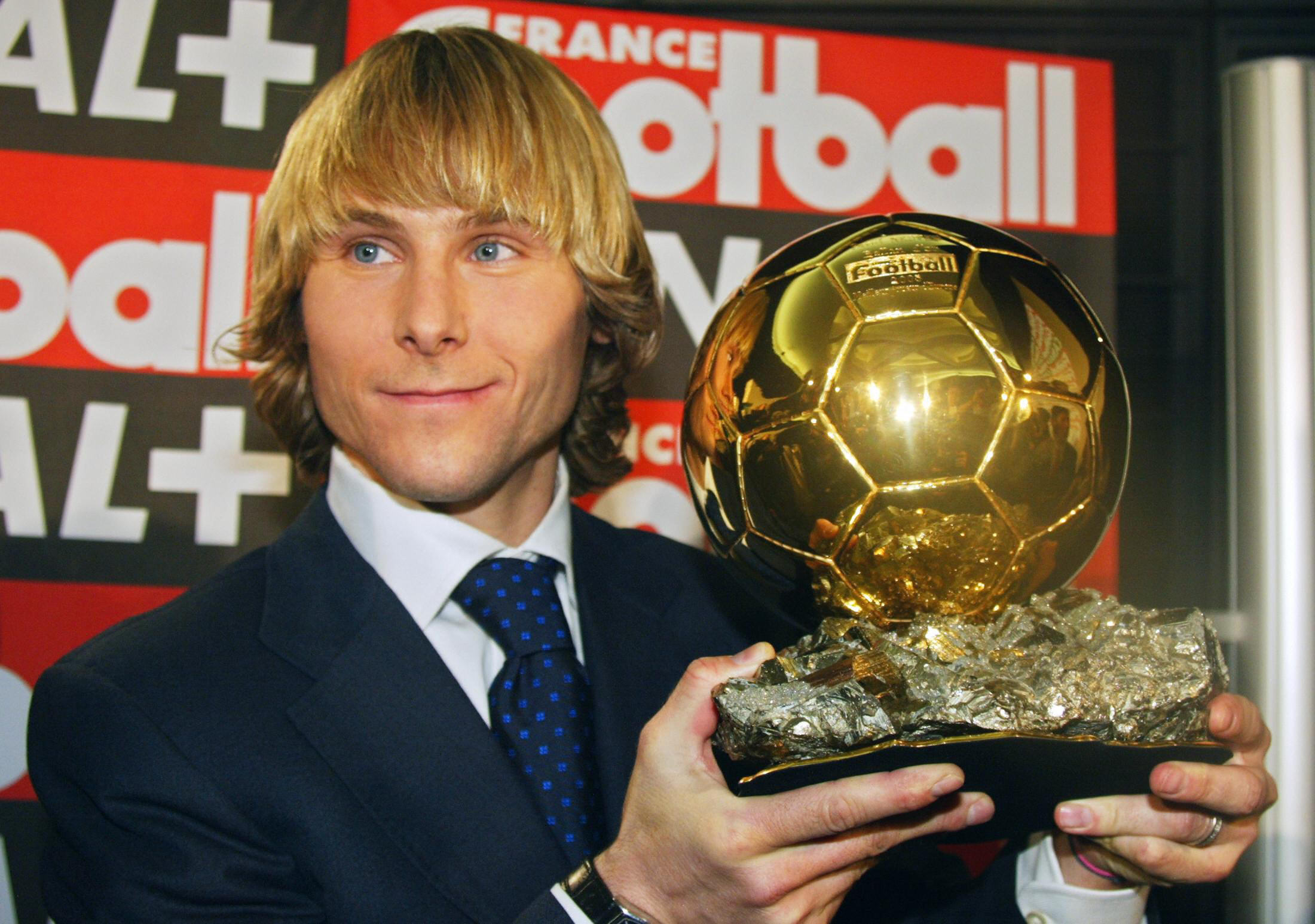
Pavel Nedved usually played as a winger or a wide midfielder for Juventus in the 2000s, having previously had a successful spell at Lazio.
The Czech Republic midfielder would create chances from wide positions and also possessed a powerful shot. He was on the losing side for his nation in the final of Euro 96 and lost on penalties with Juve in the 2003 Champions League showpiece, but he did win the Ballon d'Or that year.
7. Luis Figo
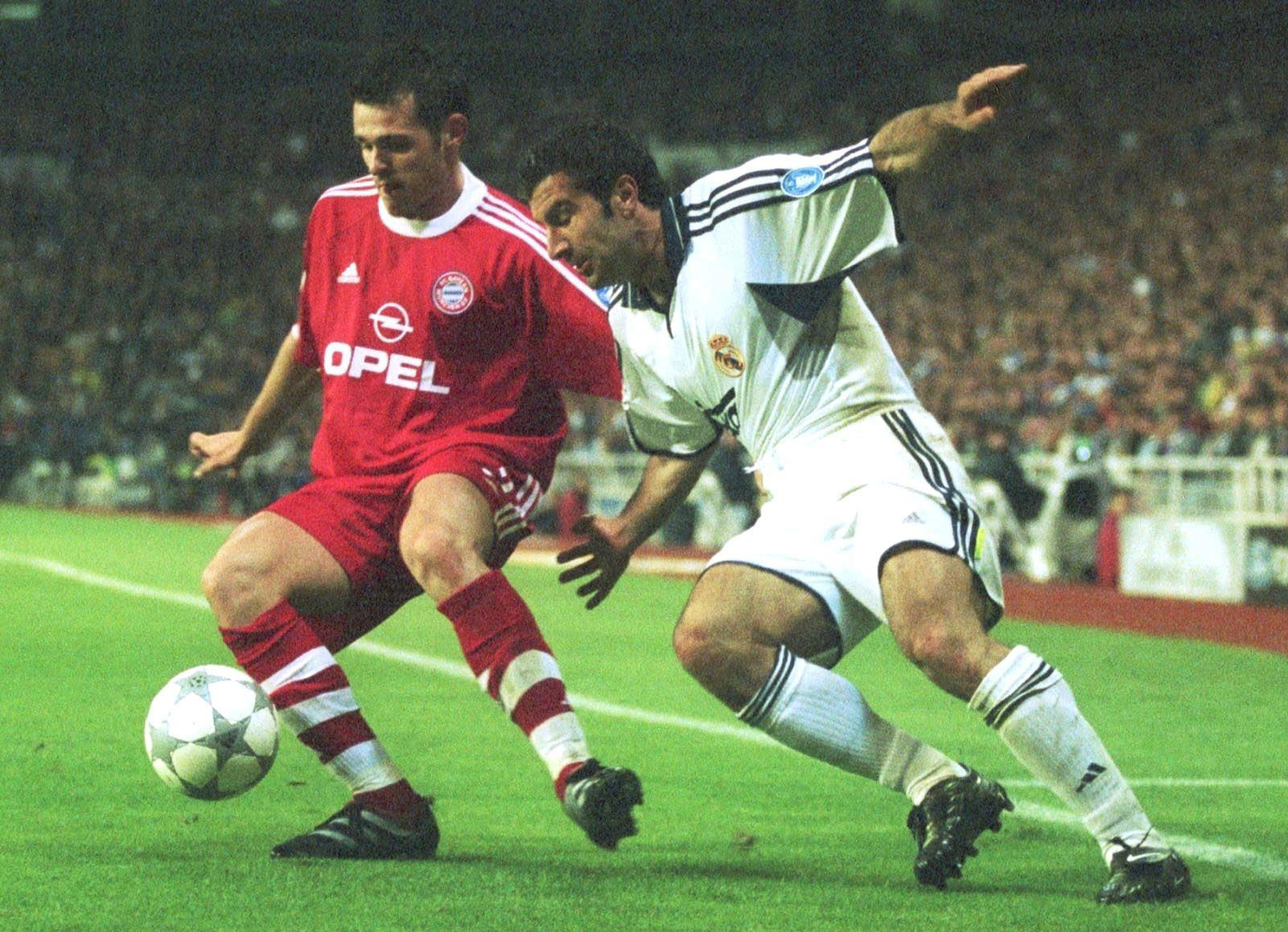
Luis Figo was still one of the best players in the world in 2000, which was the year he made his hugely controversial move from Barcelona to Real Madrid.
The Portuguese winger won the Ballon d'Or in 2000 and the Champions League in 2002. He also helped his national side to the final of Euro 2004 and to the semis at the 2006 World Cup. After leaving Real, he contributed to a run of Serie A titles at Inter, but was not quite at the extraordinary level he reached at Barça in the 1990s.
6. Andres Iniesta
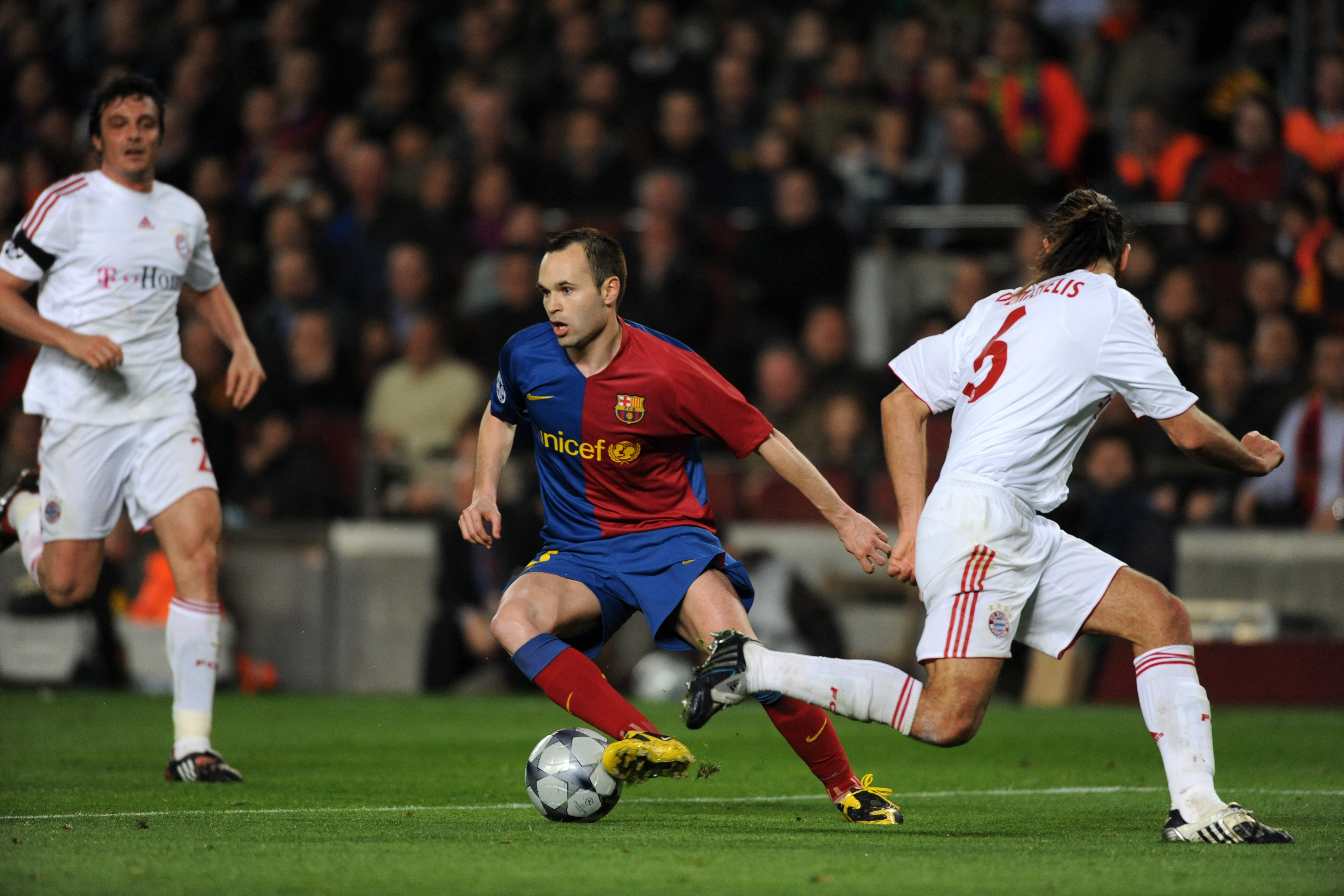
The defining moment of Andres Iniesta's career was just around the corner, his winner for Spain in the World Cup final against Netherlands about to change his life forever.
At Barcelona, the young midfielder was already very special. Handed his debut by Louis van Gaal, he was part of an extraordinary generation reshaping the modern game under Pep Guardiola. A treble winner in 2009 at Barça, he was a European champion with Spain too in 2008.
5. Andrea Pirlo

A deep-lying playmaker with AC Milan and Italy in the 2000s, Andrea Pirlo was one of the game's most elegant players.
Pirlo helped the Azzurri win the World Cup in 2006 and contributed to two Champions League titles with AC Milan. Later, he would extend his career at Juventus and play in a more advanced role for club and country. An extraordinary talent.
4. Xavi
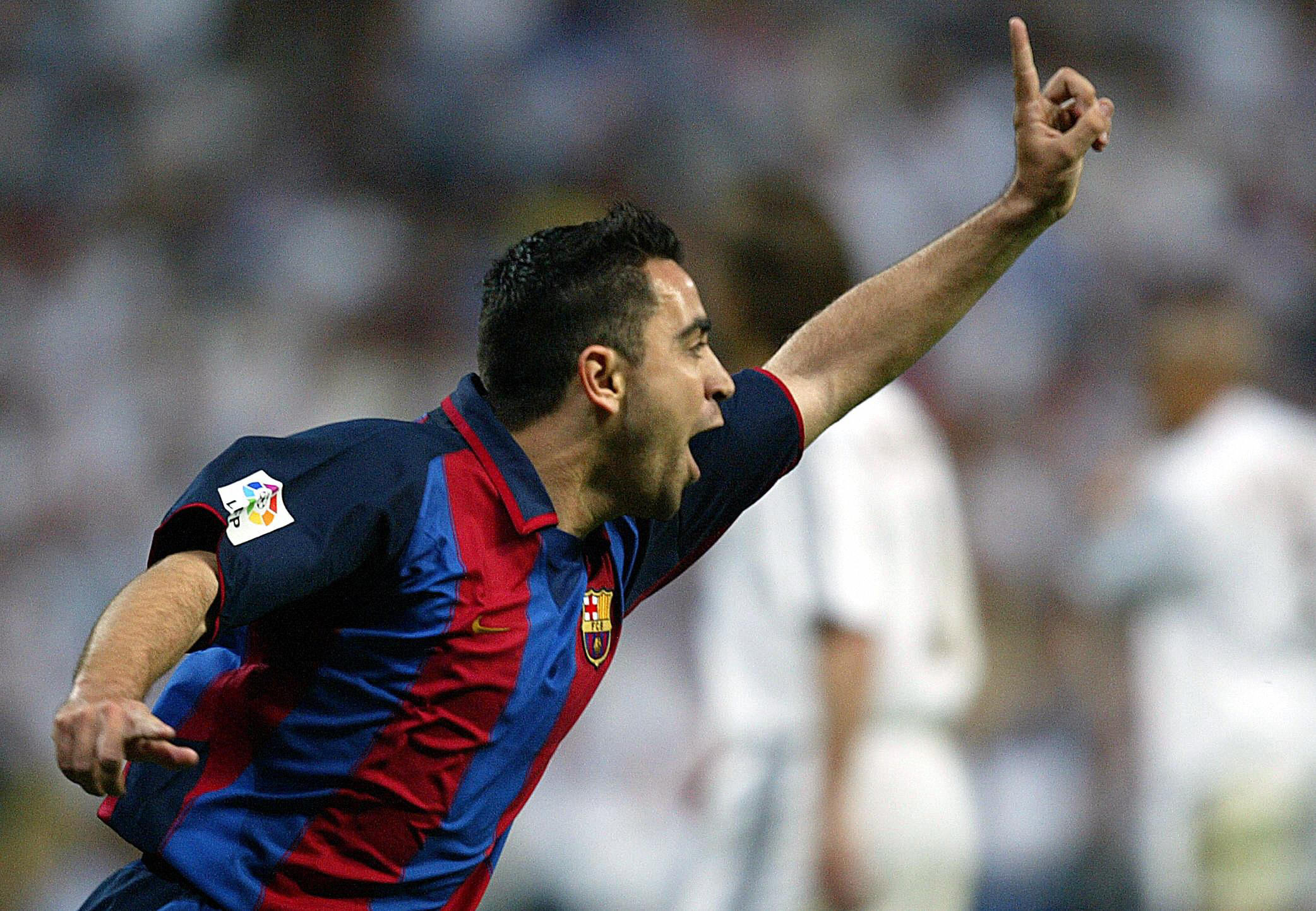
Xavi almost left Barcelona before Pep Guardiola arrived as coach, but was convinced to stay at Camp Nou by his former team-mate and became the heartbeat of arguably the greatest team in history.
The Terrassa-born midfielder, who came through the youth academy at La Masia, went on to make over 700 appearances for the club. He set the tempo and the rhythm; it all started through him. Like Iniesta, he was a treble winner and a European champion with Spain at the end of the decade, but the best was yet to come.
3. Kaka
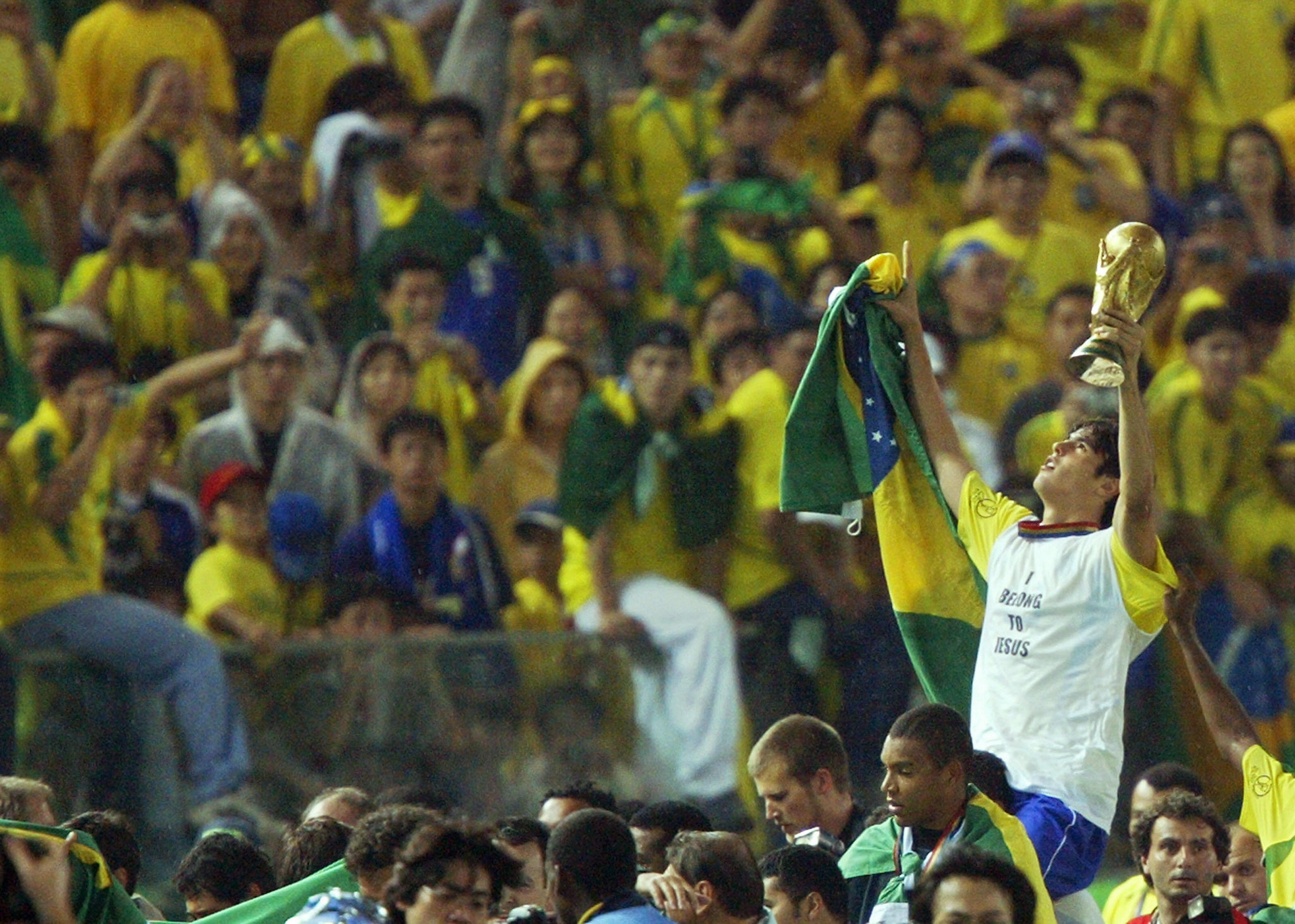
Kaka only played 25 minutes of Brazil's 2002 World Cup campaign, but the young midfielder was the nation's emerging talent at that time.
The stylish attacking midfielder would go on to win 92 caps for Brazil, scoring 29 goals. And for AC Milan, he claimed a series of big prizes, including two Champions Leagues. After the second of those in 2007, he was awarded both the Ballon d'Or and the FIFA World Player of the Year prize.
2. Zinedine Zidane
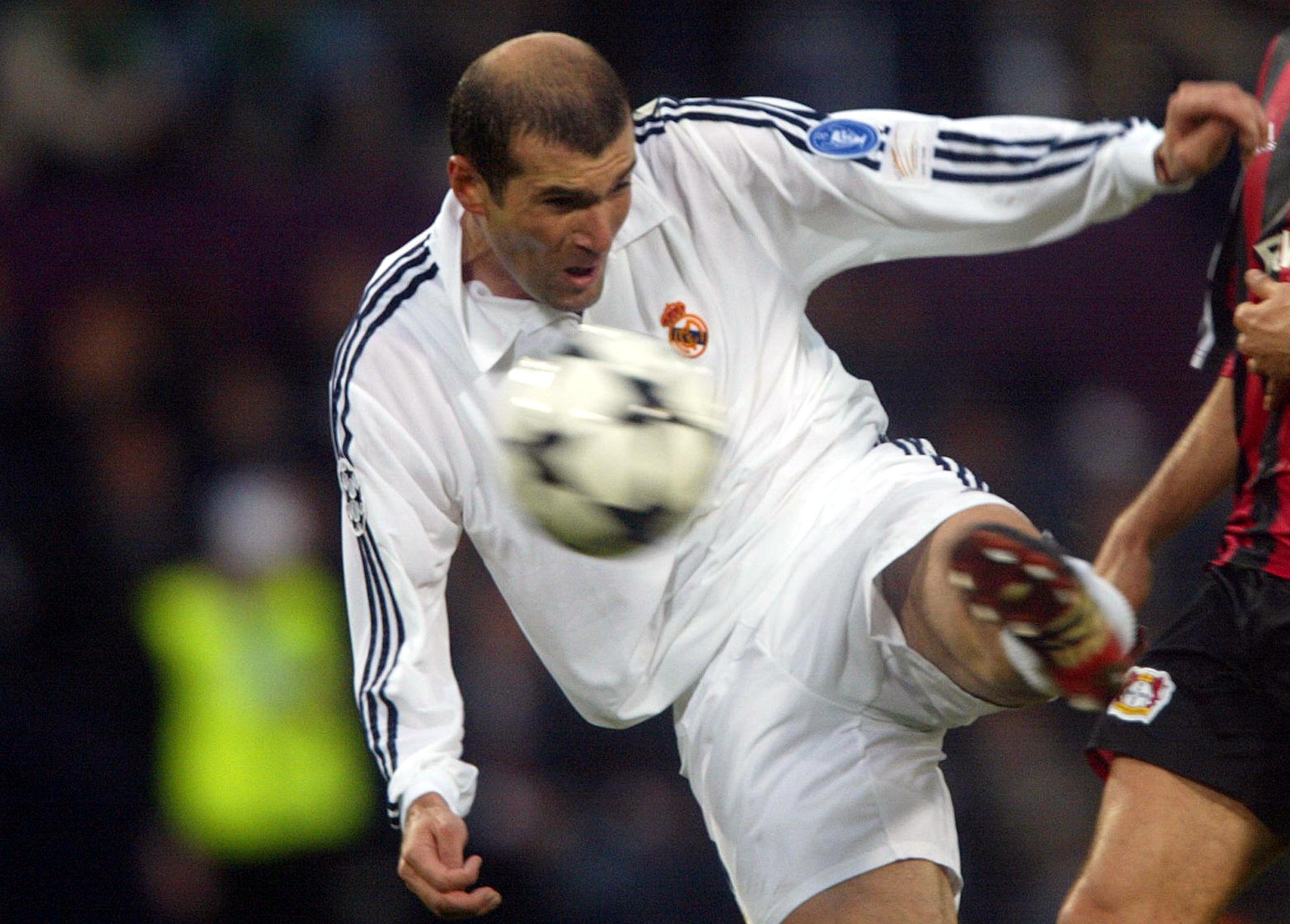
Zinedine Zidane won the World Cup with France in 1998, but the highlight of his club career came in the 2000s as he hit that famous volley to win the Champions League for Real Madrid against Bayer Leverkusen in 2002.
It was the perfect ending to his first season at the Santiago Bernabeu, having arrived from Juventus in the summer of 2001. And the 2000s also started in memorable fashion for the playmaker as he led France to glory at Euro 2000. His level would drop in the years ahead, but he took Les Bleus all the way to the World Cup final again in 2006. His wonderful career ended on a sour note with that infamous headbutt on Marco Materazzi, a red card and a lost match. But it was still a memorable period for Zizou.
1. Cristiano Ronaldo

I know what you're thinking... is Cristiano Ronaldo a midfielder? The answer is no, of course, but in the 2000s things were different. The Portuguese played as a winger for Manchester United and did not really become a forward full-fime until his move to Real Madrid in 2009.
Ronaldo was already United's talisman by the late 2000s. He led United to the 2008 Champions League final, and again in 2009 when he lost out to Lionel Messi and Barcelona. But at this point, he was already a Ballon d'Or winner and had decided to take his career to the next step by moving to Spain. Let's just say it worked out pretty well, even if he was rarely seen in midfield again.
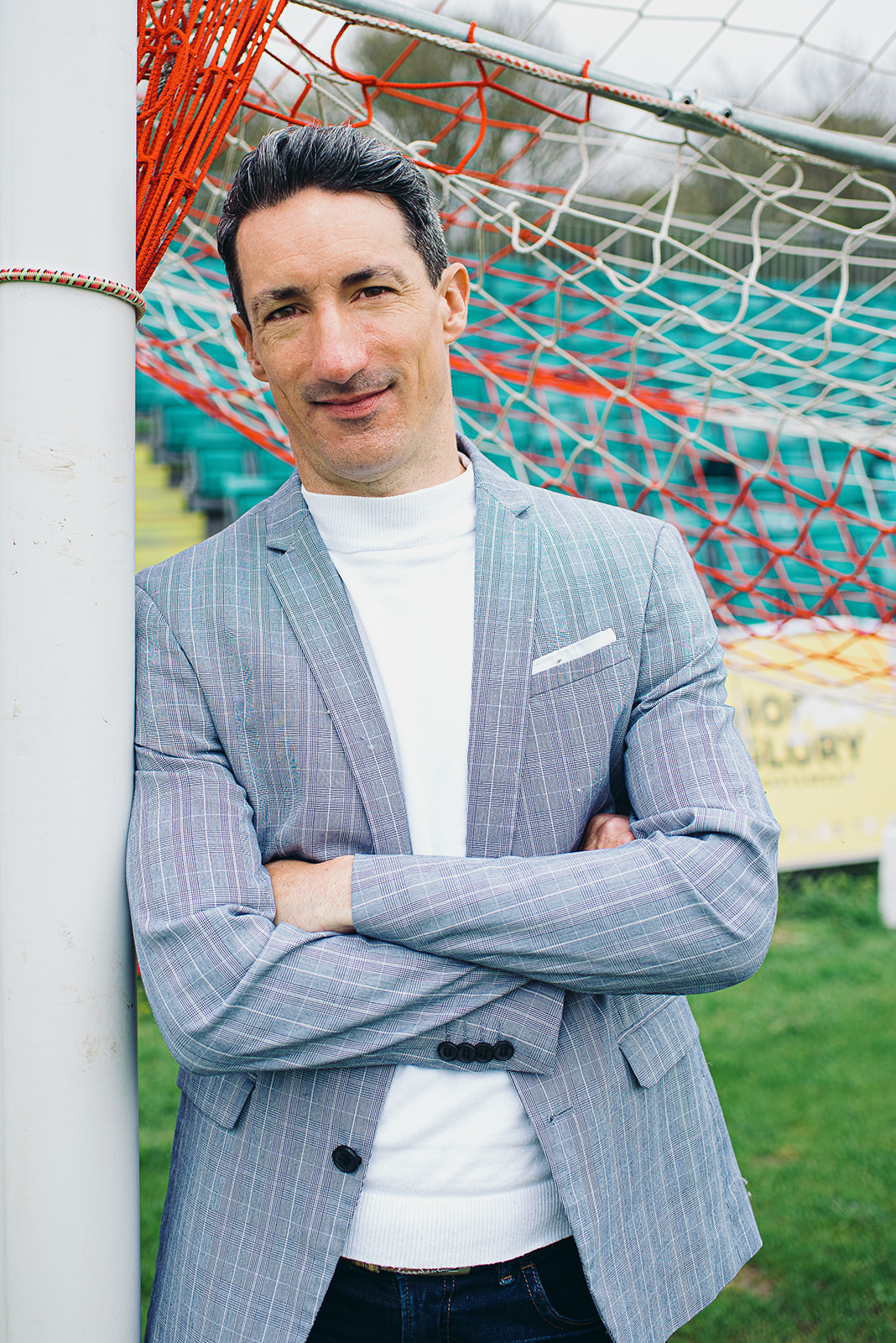
Ben Hayward is a European football writer and Tottenham Hotspur fan with over 15 years’ experience, he has covered games all over the world - including three World Cups, several Champions League finals, Euros, Copa America - and has spent much of that time in Spain. Ben speaks English and Spanish, currently dividing his time between Barcelona and London, covering all the big talking points of the weekend on FFT: he’s also written several list features and interviewed Guglielmo Vicario for the magazine.
